Text
My Top 100 Favorite Albums of All Time (Part 7: 5 - 1)
Here they are, finally: my five absolute favorite albums ever!

5. De-Loused in the Comatorium – The Mars Volta (2003)
I received De-Loused in the Comatorium as a present for my 20th birthday, shortly after getting my copy of Frances the Mute. From the day I received it, I listened to it on nearly a daily basis for the next two years. Understand, I never do that with one specific album. It was just so uncommonly good that I couldn’t stop myself from going back for more. And even though I no longer listen to it as frequently, it is still just as good as I remember it. This is the album that I most heavily associate with my time at Ringling College, and with working on projects for my computer animation classes. And believe me, I spent a lot of time on those projects—somewhere in the vicinity of 10 to 15 hours a day, 7 days a week. So to say I quickly became intimately familiar with this album is a bit of an understatement.
De-Loused is a conceptual ode to the band's fallen friend, artist Julio Venegas, who is rendered in the album's narrative as the protagonist, Cerpin Taxt. In short: Cerpin ingests rat poison and falls into a coma, during which he goes on an epic journey of self-discovery in his own mind, with the denizens of his mental landscape being all his own artistic creations. In the end, Cerpin wakes up in his hospital bed in the real world, but his desire to return to his own mental kingdom ultimately drives him to jump from a freeway overpass. Of course, all of this is tricky to discern from the actual lyrics: the Mars Volta's lyrics are notorious for being oblique and abstract, which listeners could easily mistake for being nonsensical if they aren't paying attention and reading between the lines. (Fortunately, sometime after receiving the album, I was able to procure a .pdf of the album's concept in short story format, released by Gold Standard Laboratories; while the writing style was similar, it went a long way toward making the album's lyrics more coherent. And explaining who or what "Moatilliatta" was.)
But of course, while the enigmatic lyrics did hold their own sort of fascination with me, the thing that really hooked me was the musicality. The Mars Volta offered up an eclectic blend of punk, progressive and Latin rock, and De-Loused was the album that got the formula juuuust right—a smoothie of influences ranging from Santana to the Smiths to Syd Barrett-era Pink Floyd. The intro, "Son et Lumiere", serves as a metaphorical ambulance siren as Cerpin's story begins in situ, then segues into "Inertiatic ESP", with its frenetic waltzing pace, its vintage 70s electric piano riff, and Cedric Bixler-Zavala's repeated wails of "Now I'm lost". As the story progresses to "Drunkship of Lanterns", guitarist Omar Rodriguez-Lopez layers cavernous surf rock licks atop a chugging Latin rhythm, resulting in a track that simultaneously feels haunted and vivified. One of my personal favorites, "Eriatarka", is damn near tantamount to sonic nitrous oxide, with a lilting dreamy melody that never fails to put me into a state of bliss. The album's longest song, "Cicatriz ESP", comes next, starting with a steady rhythm that falls into a serene subterranean pool before exploding into a full-on Latin jazz jam; it was this song that first showed me the true magic behind a well-executed jam session. "This Apparatus Must Be Unearthed" is where the band's post-hardcore roots show through the clearest—a chaotic, fast-paced song that could just as easily have been one of At the Drive-In's more hard-edged offerings, save for its narrative connections to this album. (Also, quick aside: something about the way Cedric's voice sounds while singing "Anonymous, avenge my name" always gives me goosebumps.) And I could go on and on. Ultimately, despite me having some memories and associations tied to it, the main reason De-Loused ended up in my top 5 is simply because of its sheer musicality, which is really impressive. Subsequent Mars Volta albums always made me feel excited, but none of them ever topped this one.
Prime cuts: "Inertiatic ESP", "Drunkship of Lanterns", "Eriatarka", "Cicatriz ESP"
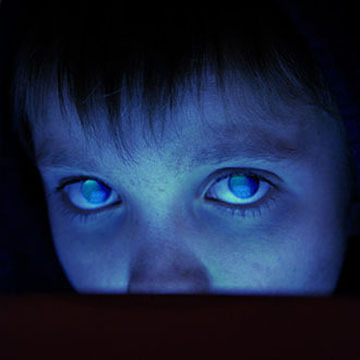
4. Fear of a Blank Planet – Porcupine Tree (2007)
I have cited several albums on this list as being here chiefly because of associations between them and my move to Canada. If that has gotten redundant or boring, well—I apologize, but it was unavoidable. People have big, important, special moments in their lives, and for me, that was one of the biggest, most important, and special-est in mine. It should probably be pretty predictable, then, that my top five contains a few of these, and that they would be the most prominent examples for me. Fear of a Blank Planet falls into this category. This was the second Porcupine Tree album I obtained, after In Absentia. At the time, it was their most recent album, having come out less than nine months earlier. During my first semester at ECUAD, when I had not yet moved my car up from Florida, I have distinct memories of listening to this album in the mornings while walking by the waterfront along False Creek to my classes on Granville Island, with the beautiful downtown Vancouver skyline on the other side of the water. "Anesthetize", being around 17 minutes long, used to go quite a way toward getting me to my destination.
Later, as I came into my own as a fine artist, Fear of a Blank Planet became (along with Riverside's Anno Domini High Definition, as mentioned earlier) a major point of inspiration for my work. One of the most polished works to come out of my time at Emily Carr, and the one that may have been most predictive of my later trajectory as an artist, was a large two-panel painting which I called "Blank Planet", as an homage. The album was a perfect summation of my thematic focus on the prevalence of technology in the 21st Century. If the title seems familiar, it's because it was itself a bit of an appropriation from Public Enemy's 1990 recording Fear of a Black Planet; as Steven Wilson has explained, the album's main drive is addressing the major current issues of technology and alienation, in the same way that Public Enemy had addressed the issue of race relations. In Porcupine Tree's case, the songs specifically describe the experience of younger Millennials, who have come of age never knowing a world without the internet, Ritalin, and constant media bombardment.
The truly astounding thing here is just how palpable the apathy is throughout the entire album, while at the same time being very emotionally affecting. It all begins with the fantastic 9-minute title track, told through the eyes of a detached bipolar adolescent whose claims include "XBox is a god to me", and "my mother is a bitch, my father gave up ever trying to talk to me". The next track, "My Ashes", is a slower, softer song that draws lyrically on the Bret Easton Ellis novel Lunar Park. But of course, it's the aforementioned "Anesthetize", which contains a stellar guest solo from none other than Rush guitarist Alex Lifeson, which truly dominates the album, and demonstrates Porcupine Tree's continued foray into heavy metal. The guest appearances continue with "Way Out of Here", as King Crimson's Robert Fripp contributes ambient soundscapes while the album's tone grows noticeably darker. Finally, the album ends with the electronic droning of "Sleep Together", which I can only describe as resembling what it might sound like if Radiohead and Nine Inch Nails collaborated on a cover of Led Zeppelin's "Kashmir". All in all, while In Absentia receives the lion's share of the recognition from Porcupine Tree's discography, it is Fear of a Blank Planet which is my pick for my absolute favorite of their albums.
Prime cuts: "Fear of a Blank Planet", "Anesthetize", "Way Out of Here", "Sleep Together"

3. Silent Alarm – Bloc Party (2005)
So what memory of mine can top moving to Canada? Well, the answer is simple: those first few trips to British Columbia, where I got to meet my friend Laurie in person after over two years of communicating exclusively online. She was one of the biggest reasons I was able to survive my time at Ringling without breaking under the pressure. Through all of the project deadlines and disappointments and the otherwise lacking social life, I always had her, encouraging me to keep going. While the two of us ultimately settled into a very happy and very close platonic relationship, at the time, I have to admit, I was quite infatuated with her. Why wouldn't I be? There was an incident once, during a moment of weakness, where I was considering suicide, and she stopped me by calling my house in Florida at 4 AM. Nobody, save for my parents, had ever cared about me in such a way. And so, in December of 2006, when I finally got the opportunity to visit her and spend time with her, of course I was excited. We chatted in my hotel room, and she showed me her neighborhood, and drove me around Vancouver in her old Pontiac Sunfire. And I remember vividly what was playing on her stereo: her copy of Silent Alarm Remixed. That was my first exposure to Bloc Party.
When I returned to Florida after that first trip, I bought the original version of the album, and it ended up in heavy rotation in my own car stereo for that final semester at Ringling. Admittedly, as I've already mentioned, my first trip to BC did not go quite as smoothly as I had hoped—partially because of the culture shock, and partially because she didn't quite feel the same about me as I did about her. But we remained close friends, and I was willing to try again. When I returned for two weeks the following summer, after my time at Ringling had come to an end, the experience was incredible. No, beyond incredible—they were two of the most important and special weeks in my entire life. That was the trip that finally convinced me to actually commit to moving there. And I suppose Silent Alarm came to symbolize the whole thing for me; it was a new experience for me, one that had been completely unknown, and which represented a new sensibility that didn't really seem to fit my old life in Florida. I was 21, and as "Banquet" put it, I was "becoming adult".
What makes Silent Alarm all the more impressive, beyond just its great significance to me as the background music of the most seismic shift in my life, is its sheer vitality. For a debut album, it really was as tight as it could possibly be. The chemistry of Kele Okereke's thickly-accented Londoner vocals, Russell Lissack's guitar, Gordon Moakes's bass, and Matt Tong's frenetic drumming resulted in an album that felt unusually charged with electricity. Songs like "Banquet", "Helicopter", and "Like Eating Glass" took a page from the punk playbook without getting mired in the usual trappings of punk. I still can recall that Laurie's favorite was the final track, "Compliments", a sparse, gently humming song that ended the album on a very laidback vibe. When I made the remark about diminishing returns with Bloc Party (waaay back when I was talking about #90 on my list, the band's album Four), this is the point from which they were always subsequently diminishing. This is the high-water mark. And in all fairness to the band—it's kind of difficult not to fall into that pattern when your starting point is already so exceptional and vibrant.
Prime cuts: "Banquet", "Helicopter", "Like Eating Glass", "The Price of Gas"
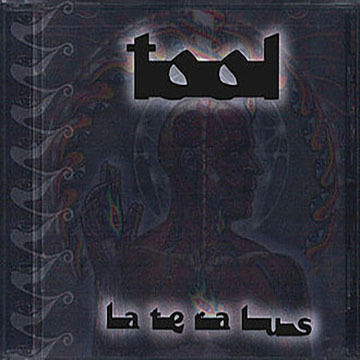
2. Lateralus – Tool (2001)
Lateralus was not my first Tool album. That distinction belongs to their first full-length album, Undertow. But Lateralus was the first one to really speak to me from an elevated plane, even before Ænima. Undertow brought the heaviness— I think of it almost as a lead weight in sonic form— but it honestly didn't sound a whole lot like the progressive mainstay that Tool eventually became, and which I came to love dearly. Early on, as I've already said, no band was quite as fundamental in my musical tastes becoming what they are as Tool was. And this is the album where they really came into their own. If Undertow was a lead weight, Lateralus was a clarifying light.
On the strength of the single "Schism" and its delightfully perplexing music video featuring contortionists in blue-grey body paint, I bought Lateralus the day it was released: May 15, 2001. I was 15 years old. For some time, I nicknamed it the "rain album", because (I kid you not) for the first several months, whenever I would listen to it, by some strange coincidence, it always seemed to bring a storm shortly afterward. I loved everything about it. From the amazing Alex Grey anatomical transparencies in the liner notes, to the strange time signatures and the mystifying lyrics— it grabbed hold of my soul in a way that no other recording has, before or since. From the opening of "The Grudge" to the very last notes of "Triad", and even the bizarre Art Bell radio-show-prank-phone-call-from-Area-51 which constitutes "Faaip De Oiad", Lateralus is an intensely spiritual experience for me. This is my Bible, my Bhagavad Gita. And it has served me well over the years, through the creation of artwork, and studying for exams, and unpleasant dental procedures. (No, seriously, I highly recommend trying this album while pumped full of nitrous oxide. There's nothing like it.)
"Schism" might be what brings you to the show here, but the two-track suite "Parabol/Parabola" is what keeps you listening, with its poignant message about living in the present and not taking the precious gift of life for granted. The album's closing trilogy of "Disposition/Reflection/Triad" offer another high point, with the second song being the main focus. "Reflection" is not only the longest track on the album, but one of its most divinely beautiful as well, with its Hindustani-influenced drumming and sarangi accented by an electronic drone. But of course, the main centerpiece of the album is the title track, "Lateralus", often cited as one of the greatest metal songs of the 21st Century so far. At nearly nine and a half minutes long, the song's true brilliance lies in its vocal delivery and time signature both being structured around the Fibonacci sequence; the lyrics about "spiraling out" are somehow all the more meaningful when woven into a tapestry whose very fabric is literally the arithmetic behind spirals. For someone like me, who absolutely cannot exist without thoughtful, cerebral music, this is the album that I hold as the gold standard for everything else.
Prime cuts: "Schism", "Parabol/Parabola", "Lateralus", "Reflection"
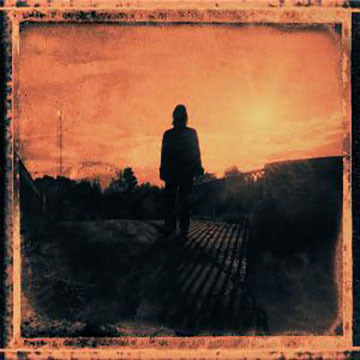
1. Grace for Drowning – Steven Wilson (2011)
And then there was one. Of course the list ends right back where it began back at #100, with a Steven Wilson solo album. His second solo effort is probably not the most popular choice out of his body of work, but I don't care. In my view, it's criminally underrated. It's absolutely, hands down, my favorite album of all time. No additional thought required.
So what's so damn special about Grace for Drowning, that I rank it above even Lateralus? Well, the simple quantity of music is a good place to start. Grace for Drowning is a two-disk set; the first disk contains the majority of the album's tracks, while the second disk is dominated by the monstrous 23-minute behemoth titled "Raider II", as well as a few smaller compositions like "Index" and "Track One". Around the time of the release of Grace for Drowning, Wilson had caused a bit of a stir by mentioning his boredom with continuing to pursue Porcupine Tree's previous heavy metal style, and his unabashed admission that he was listening to much more freeform jazz than hard rock. For some listeners of Porcupine Tree, this was discouraging, particularly because it seemed to telegraph that Steven Wilson really might be serious about being done with his old band. However, in listening to Grace for Drowning, I simply cannot mourn for Porcupine Tree, because Wilson's solo music is every bit as masterfully composed, with quite a bit more freedom to really experiment with new styles without the pressure of preconceived expectations. The end result was not something that pandered to fans, but instead a tremendously courageous and seductive blend of jazz jams and prog rock, with flute and sax sections provided by longtime PT collaborator Theo Travis. It was a true piece of artwork, made all the more miraculous by its emergence amidst a 2010s pop music landscape that is incredibly hostile to such heady endeavors. (*cough* Dubstep. *cough*)
But then, beneath the veneer of long jam sessions and rock guitars, at his heart, Wilson is a master craftsman of pop as well. "Deform to Form a Star" demonstrates this well, as do "No Part of Me" and "Postcard", a sentimental melody that reeks so much of self-deprecating despondency that it might as well be my personal anthem. Meanwhile, Wilson's penchant for creating eerie and subtly unsettling music shines through on "Remainder the Black Dog" and the instrumental "Sectarian", where dramatic choral arrangements and Travis's diabolical saxophone produce some of the album's most stunning moments of tension. "Index" keeps the tension intact on the second disk, with its lyrical content detailing a fastidious collector whose obsession with adding to his collection ventures dangerously close to creepy and stalker-ish.
And then, "Raider II" comes on, and all of the unspoken menace that has been slowly building and bubbling under the surface erupts into full effect. How could it not, in an epic song inspired by Dennis Rader, the notorious Kansan serial killer more commonly known as the BTK Strangler? The intro begins with a simple piano passage on the low end, with a clarinet joining in to add some treble; in between, there are long pauses for several seconds at a time, where it could be said that Wilson is playing the anxious silence itself like an instrument. The vocals begin quietly at around a minute and a half into the song, with the intro going quiet one last time before exploding with full fury just before the three-minute mark. The next four minutes cycle through the verses, a few unexpected death growls, and a beautiful flute solo from Travis. Then there's another short lyrical passage, before the unhinged guitar solo, which segues into a smooth saxophone solo. At eleven minutes in, the guitars return with a vengeance, and then recede again into the reverb, leaving a disquieting stillness in their wake. Out of the silence the song catches its second wind and emerges again with a jangly guitar melody, over which Wilson evokes disturbing metaphors for the serial killer's mentality: "A cat among the crows, I'm raider / The butcher and his prose". Finally, the song winds down with a chaotic ensemble, its ever-increasing tempo finally culminating in a single sustained blast of disorder, with two minutes of slow bass and guitar to pad the ending. And after such a harrowing rollercoaster ride, the album ends gently on the palate cleanser, "Like Dust I Have Cleared from My Eye".
In summary, Grace for Drowning is my favorite album, probably because of the wide emotional range it exemplifies. There are parts of the album that are peaceful and delicate, parts that are achingly sad and wistful, parts that are laidback and mellow, and of course, parts that are incredibly dark and sinister. There is ample expressive complexity and splendor here, for those who can appreciate it. And there is heaviness here, too, in a way that doesn't rely on the metal clichés of Wilson's past. Overall, a phenomenal album, and one that likely won't soon see a challenger for its title as my favorite of all time.
Prime cuts: "No Part of Me", "Postcard", "Remainder the Black Dog", "Raider II"… fuck it, the entire album.
0 notes
Text
My Top 100 Favorite Albums of All Time (Part 6: 10 - 6)

10. Anno Domini High Definition – Riverside (2009)
In 2010, as I was preparing to leave Emily Carr University with a degree in fine art, I was faced with questions about the direction I wanted my painting practice to take. What did I want my artwork to say? I began by reevaluating my niche as an artist, trying to take stock of whatever attributes I had which set me apart from my peers. The largest, as far as I was concerned, was my training in computer animation. All of my colleagues were traditional painters, and that was a skillset which I could see that I possessed and others didn't. With that in mind, I decided to focus my work thematically on technology; I wanted to be able to incorporate my training with 3D computer modeling software and Photoshop into my painting, and I also felt very strongly that technology would be one of the most vital themes that could be explored by a 21st Century artist.
Around the same time, I discovered Lunatic Soul and Riverside. At first, I was just happy to have something new to listen to in the studio while I painted. But when I obtained their most recent album at the time, Anno Domini High Definition… it truly spoke to me. It was perfectly in line with the theme of my own artwork— an album which explores the effects our advancing tech is having on us. Is it really connecting us, or is it driving us apart? Is it really enlightening us, or is it turning us all into zombies with goldfish attention spans? It's all there in the title of the album, a phrase which alludes to the fact that we live in the age of wi-fi and high resolution, but also serves as a clever backronym for ADHD. This was the thesis statement for my artistic practice, in musical form.
The album begins with "Hyperactive", which emerges from a simple piano melody, and picks up steam until transitioning into a heavy metal day-in-the-life chronicle of a person whose entire perception of reality has been altered by his electronic existence. It is also the shortest song on the album, with each of the four subsequent songs being progressively longer. Clocking in at nearly 9 minutes, third track "Egoist Hedonist" meanders through three movements, including a jazzy brass section interlude, while dealing topically with the crushing pressure of conformity to society's expectations. The beautiful slower-paced "Left Out" picks up where the preceding song leaves off, detailing the emotional consequences of being overlooked in such an oppressively homogenous society. But the album's full power is conserved until the final track, "Hybrid Times", an almost 12-minute epic that embodies the perils of 21st Century life in its most virulent form: technology addiction. It starts with a frantic piano, and gives rise to squealing organs and guitars and Mariusz Duda's screams about obsession, before sinking into a seductive sea of digital ambience. In summary, from an aesthetic perspective, this is one of the albums which I feel best encapsulates my relationship with the ever-advancing world around me.
Prime cuts: "Hybrid Times", "Egoist Hedonist", "Hyperactive"
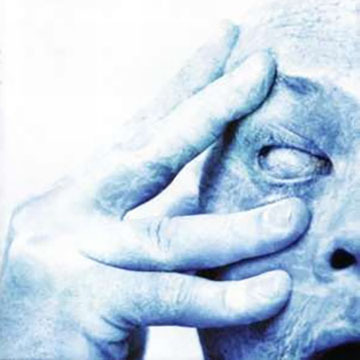
9. In Absentia – Porcupine Tree (2002)
With as much of Porcupine Tree and Steven Wilson's solo work as ended up on my list, I'm sure it's not going to come as a colossal surprise to anyone that In Absentia ranks this high. This is, after all, the most critically and commercially successful album in the band's two-decade discography, and the one that many fans will point to as their best. When you mention Porcupine Tree to someone, chances are, this is the album they're going to think about first. It's a fantastic album for initiating someone who hasn't heard of them. I should know. It was the first one I heard, too.
I came across Porcupine Tree around 2006, while I was still at Ringling College in Florida. I had recently heard of this cool new website called Pandora Radio, which could recommend music based on a listener's selections. I decided to test it out by asking it to find me music in the same modern progressive rock vein as the Mars Volta. One of the songs that popped up was "Radioactive Toy", an early Porcupine Tree song that was featured on their 1992 debut album On the Sunday of Life. It wasn't as similar to the Mars Volta as I had expected, but it was interesting enough to me that I remembered it and moved on. Later, when I got around to doing more research into Porcupine Tree, and which album was best to properly introduce me to their sound, In Absentia was the one upon which everyone seemed to agree. So I tracked down "Blackest Eyes" and "Trains" on YouTube, and gave them a listen. Just from listening to those two songs, I was an instant convert. And it was a rather momentous timing as well, as I was reaching the end of my time in Florida, and preparing to start a new chapter of my life in Canada. Looking back on it, I now realize I've unconsciously drawn a pretty big line in my head: my last two years in Florida were my Mars Volta years, and my six in B.C. were my Porcupine Tree years. It's a funny thing, how the mind works sometimes.
Musically, In Absentia is an infectious blend of the band's progressive roots with a distinctly post-90s alternative rock influence, as well as some heavy metal edge and a little extra ambience tossed in for good measure. Though not a concept album in the purest sense, many of the album's tracks, including "Blackest Eyes" and "Strip the Soul", are thematically linked to serial killers, and an exploration of the impetuses behind their twisted mental states. Like the other two albums directly before it, In Absentia also has one of Steven Wilson's trademark critiques of the music industry, this time in the form of "The Sound of Muzak", which laments the apathy with which the degradation of popular music is regarded. Wilson's vocals may perhaps not be the flashiest, but there's something in the conservative, simplistic nature of his singing that has always struck me as charming— particularly in songs like "Trains", where he layers the vocals to produce a wholesome choral effect. And while we're on the subject of "Trains"… yes, I know it's so cliché of me to say, given how it's the single most popular song in the band's repertoire, but it's damn near flawless. Listen to "Trains" and tell me you don't feel something special, I dare you. And the same challenge can also be extended to the devastating "Heart Attack in a Layby", or the melancholic "Prodigal", or the album's beautifully graceful piano finale, "Collapse the Light into Earth". There's just so much stellar musicianship here, that I have a difficult time fitting it all into a terse few paragraphs.
Prime cuts: "Trains", "The Sound of Muzak", "Strip the Soul"
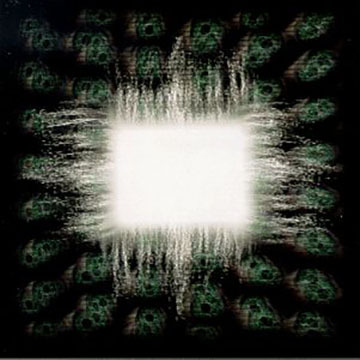
8. Ænima – Tool (1996)
One of the most indispensable albums of my high school years, I received my copy of Ænima sometime around 2001 or 2002. Upon my first listen, it became an instant favorite, and cemented Tool as one of the most profoundly important bands I had ever heard. I can't overstate this. When I was 17, Tool was the axis around which all my other musical tastes rotated. They were the foundation of my love of progressive rock and metal. In an era when boy bands were only just beginning to peter out, Tool— and Ænima specifically— helped me keep my sanity, and showed me that musical appeal and intelligence were not mutually exclusive. That was incredibly important to me at that age, because I sure didn't see many other signs around me that my intellect was something of which I could be proud.
Ænima is, in many ways, a transitional album— after the band's first full-length release, Undertow, they parted ways with their original bassist Paul D'Amour and replaced him with Justin Chancellor, which shifted their sound away from the blunt, primal heaviness of their early work, toward something much more nuanced and thought-provoking. Ænima was the sound of Tool evolving. The name itself is meant to be symbolic of change— a mixture of "anima" and "enema", representing the purging of the psyche. And of course, I would be remiss if I failed to mention one of the other major catalysts for this metamorphosis: the band's experiences with the now-legendary comedian Bill Hicks, who passed away in 1994 from pancreatic cancer, and to whom Ænima was meant as something of a posthumous tribute. Hicks was first and foremost an evangelist for free and critical thought, and while opening shows for Tool, his influence rubbed off on the band. It was Hicks' routine entitled 'Goodbye You Lizard Scum', a tongue-in-cheek rant about the destruction of Los Angeles as retribution for its vapid banality, that inspired the album's apocalyptic title track (albeit, spelled "Ænema" instead).
While it may not quite be their most advanced work, Ænima is sonically one of their most interesting albums, and was the one that was responsible for laying much of the groundwork and setting many of the precedents for the path the band was to follow in their post-Undertow years. It is the album that introduced the band's use of experimental segue tracks to pad between the actual music and showcase their quirky sense of humor—here, there are several, including "Message to Harry Manback", a violent answering machine message from an irate Italian which the band reframed as a love poem; "Useful Idiot", which is comprised of the sound of a record skipping, and which was included in order to mess with listeners of the vinyl edition; "Intermission", which is a Monty Python-esque organ intro for the song "jimmy"; and "Die Eier Von Satan", an industrial-sounding German screed intended to fool the unsavvy listener into mistaking a cookie recipe for a Nazi rally. Thematically, the songs themselves are largely tied to the subject of personal evolution: "Stinkfist" vocalizes a disenchantment with desensitization, "Forty-Six & 2" explores the idea of growth through terms of Jungian psychology, and the album's 13-minute finale "Third Eye" begins with samples of Hicks's stand-up act and takes the listener on a journey of deep, psychedelic-fueled introspection. From start to finish, Ænima is about shedding one's old skin and attaining a new consciousness— it's what the band themselves did in the course of making the album, and musically, it's what I did in discovering it.
Prime cuts: "Pushit", "Stinkfist", "Third Eye"
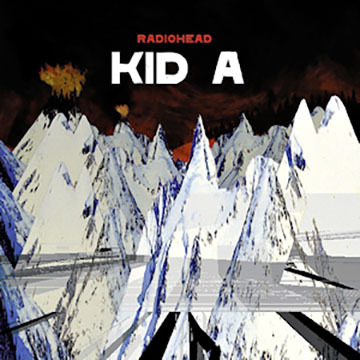
7. Kid A – Radiohead (2000)
Let me set the scene for you: It's Spring Break 2007. The beginning of April in Florida, and I'm 21 years old. I'm staying in a hotel room in Orlando over the weekend, after driving up from my parents' house in Bradenton. My mission is to gain entrance to the Canada Pavilion at EPCOT, so I can do some artistic research on totem poles for my senior thesis presentation at Ringling. It's been a few months since my first trip to actually visit Vancouver, when things didn't go as well as I had hoped. On Saturday night, I am heartbroken, despondent, and completely at a loss for what to do next in my life. Sitting alone in the dark of my hotel room, I listen to "How to Disappear Completely", and totally collapse into despair. Kid A was an album that I discovered from my time spent in Canada, from friends who were fans of Radiohead. In that moment, though, the music perfectly mirrored my isolation and melancholia—I actually felt like disappearing completely.
I know it's a strange incident to cite as a reason for liking this album, but it isn't just this one incident that has indelibly stamped Kid A into my consciousness. I have so many memories tied to that album: camping near Harrison Hot Springs, in the forests of British Columbia; late-night singalongs in the car with friends while driving somewhere; the ending of my time in Florida. Despite the fact that Kid A alienated a lot of Radiohead fans who were expecting something more along the lines of OK Computer, Part 2, it's actually my favorite Radiohead album specifically because it's such a hard-left turn away from everything the band had ever done up to that point (well, that, and the memories). There's an eerie feeling permeating the entire recording— steeped in paradox, simultaneously calm and frenetic. I once told my friend Laurie about the Orlando incident, and that I interpreted "How to Disappear Completely" as six minutes of sheer melancholy. She replied that the impression the song gave her was much more positive and uplifting. And here's the thing: after that conversation, both of us could understand the reasoning behind the other's perspective. The song is both of those things at the same time.
The biggest change, of course, was Radiohead's risky decision to ditch their trademark 90's alt-rock sound for an avant-garde art rock blend with a sound palette of strange digital textures and electronic drum beats— "Everything in Its Right Place" and "Idioteque" being textbook cases. In other instances, like "The National Anthem", the band experiments with jazz instrumentation that, only three years earlier, would have been unthinkable on a Radiohead album. The only song on the album that even remotely resembles the old Radiohead's rock roots is "Optimistic", although even that song is much more ambient than their usual early fare. And through it all, Thom Yorke's distinct voice, despite being frequently unintelligible, lends the music another dimension of emotion with a collage of strangely oblique lyrics. It's an album that has served very well as an expression of my own adventures into the unknown.
Prime cuts: "Idioteque", "Everything in Its Right Place", "How to Disappear Completely"
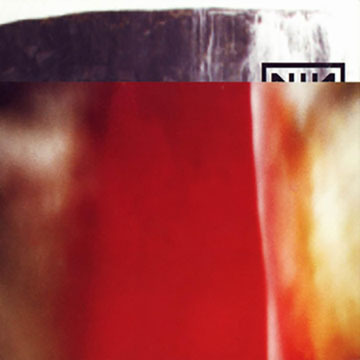
6. The Fragile – Nine Inch Nails (1999)
As a teenager, I was slow to develop an affinity for Nine Inch Nails (as well as associated act Marilyn Manson). It wasn't for lack of interest; I'd seen NIN and Marilyn Manson music videos, and I knew for sure that I was interested. It was mostly because I lived in the Bible Belt, and because I was also wary of what my parents' reaction might be if they knew I owned anything by them. Don't get me wrong—they weren't really religious themselves, and they were usually pretty laissez-faire about my musical tastes… but I can recall an occasion where my father once told me in no uncertain terms that he saw no artistic merit whatsoever in Marilyn Manson; it was one of the very few times growing up when I really felt like my parents and I clashed on the sort of music to which I could listen. But The Fragile changed that. In 2003, in the summer between my junior and senior years in high school, I spent a month at a pre-college program at Ringling, which was intended to give prospective students an idea what on-campus life would be like. During one of my periods of free time, I was browsing a nearby store which sold used vinyl records and CDs, and came across a copy of The Fragile. It was my chance! No parents to worry about for weeks, no conservative Georgia atmosphere to tell me no— I was totally in the clear to buy it and add it to my collection, and no one could do a goddamn thing about it. Over the next few weeks of the program, as I became familiar with the album, I finally had a chance to properly fall in love with NIN.
So what do you do after you create a groundbreaking album like The Downward Spiral? How the fuck do you top it? That question has already been partially answered by my review of Kid A (another album that was created under similar circumstances). But in Trent Reznor's case, I suppose another part of the answer was quantity, because The Fragile is a double album, separated into a "Left" disc and a "Right" disc. That doesn't necessarily mean he sacrificed quality, though. I sort of feel conflicted saying this, because I know that Reznor was personally going through a particularly difficult and painful time in his life during the recording of this album… but it's my favorite NIN recording, specifically because it's so much more nuanced than anything else he'd done up to that point. I can't say it's heavier, because Broken takes that distinction; I can't say it's truly darker, because of The Downward Spiral. But The Fragile is very hard and very dark, in a less readily apparent way. It doesn't bludgeon you like its predecessor does. There are still furious outliers like "Somewhat Damaged" and "No, You Don't", but the rage of The Downward Spiral has been transmuted into resignation, self-loathing, and even some quieter moments of introspection here.
One of the biggest differences between The Fragile and its forerunners is the increased presence of piano—not a synth, not a keyboard, not digital textures, but a real, honest-to-goodness traditional piano. It was something that really hadn't been seen very much from Reznor at the time. Aside from the raging intro (the aforementioned "Somewhat Damaged"), the Left disc is full of songs where the piano has a conspicuous presence: "The Frail", "The Wretched", "We're in This Together", "Just Like You Imagined" (also known as the instrumental from the trailers for 300), and the oddly gentle "La Mer". The end of the Left disc is capped by the eerily beautiful "The Great Below", which has, over the years, earned the dubious distinction of being one of my top picks for listening during my depressive bouts; it is about as close as I've ever truly been to staring into the abyss. On any other recording, I would consider it the climax of the whole work, but in this case, considering its subject matter, I wonder if it's not more fitting for me to call it the nadir instead. The Right disc, on the other hand, sees Reznor more in his usual element, with the hard-edged guitars, precision drums, and rasping, glitching electronics of songs like "Where Is Everybody?" and "Please". When it comes down to it, The Fragile's real strength lies in being the best demonstration of NIN's full musical range— and through it all, Reznor's mix of self-deprecation, cynicism and flirtations with nihilism hold the diverse assemblage of songs together as a binding element.
Prime cuts: "We're in This Together", "The Great Below", "Into the Void"
And at last, all that is left is the top 5! Check back here tomorrow for the final part of the list!
0 notes
Text
My Top 100 Favorite Albums of All Time (Part 5: 20 - 11)
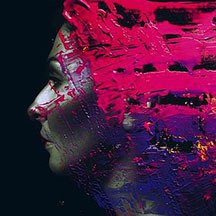
20. Hand. Cannot. Erase. – Steven Wilson (2015)
For his fourth solo release, Steven Wilson took inspiration from the real-life story of Joyce Carol Vincent, a young woman who passed away in her London flat in December 2003 and remained undiscovered for more than two years, even despite having family and friends, and having left her television on at the time of her passing. The album follows the story of a fictional woman heavily based on Vincent, ending with her abrupt disappearance. With a stylistic nod to prog pioneers like Rush and Yes, as well as the powerful guest vocals of Israeli singer Ninet Tayeb, Hand. Cannot. Erase. serves as a poignant examination of the isolation and alienation of modern urban life.
Prime cuts: "Home Invasion / Regret #9", "Routine"
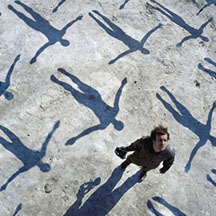
19. Absolution – Muse (2003)
Bolstered by the success of the lead single "Time Is Running Out", Absolution is the album that first gained Muse major mainstream recognition as a band to watch. There aren't many hints of their later excessive, over-the-top tendencies here— though "Butterflies & Hurricanes" does contain a piano section which aptly demonstrates Muse's appreciation of classical music. Instead, this is one of Muse's more low-key and easy-to-listen efforts, demonstrating the prowess of a band that could be content with crafting hauntingly beautiful melodies ("Sing for Absolution", "Blackout", or "Ruled by Secrecy" all come to mind), or simply shredding (as on "Stockholm Syndrome"). Sometimes, less is more, and simplicity is just better.
Prime cuts: "Stockholm Syndrome", "Butterflies & Hurricanes"

18. Core – Stone Temple Pilots (1992)
At the beginning of their musical career, Stone Temple Pilots was another in a lengthy list of bands that benefitted from the exposure afforded them by the Seattle grunge explosion in the early 1990s. They spent years dogged by accusations of sounding a bit too much like Pearl Jam, before they eventually managed to develop a more distinctive voice that distanced themselves from anyone else. That isn't to say that their early material is bad, though; on the contrary, their first album, Core, is hands down my favorite of theirs. I don't think of it as derivative, either; rather, I appreciate it for what it is. Like most of the alt-rock at the time, there is a dim, dingy feeling about it— but it's all channeled through a sunny production, reflective of their San Diego roots. There's more California here than Washington. That makes for an album which is oddly upbeat about being grungy, which I find rather appealing.
Prime cuts: "Plush", "Wicked Garden"
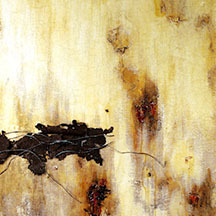
17. The Downward Spiral – Nine Inch Nails (1994)
There is no album that encapsulates my high school years quite like The Downward Spiral. Which probably says something terrible about me, because— with all due respect to Trent Reznor, but let's be honest here— this is a seriously fucked up album. This album is what it sounds like to slowly be driven into the ground, day by day, until you are ground down into little more than a cold, numb machine made of rotting meat, just begging for the sweet release of death. This album is how it sounds to gradually become an automaton, going through all the motions, but truthfully no longer giving a fuck. This is nihilism incarnate. And I've been on that brink myself, more times than I can count, driven by a sense of alienation from the hostile outside world, and it never gets any easier. But at least through the rough patches, I've had The Downward Spiral to reflect my turmoil. When I first encountered this album, I immediately adopted "Heresy" as my personal anthem— a song that expressed perfectly to my repressive Bible Belt surroundings just how I felt about their precious 'Good Book'. I buried all my vulnerabilities and my pain beneath a mechanical visage, as modeled in "The Becoming", and I grew a thicker skin. I gravitated to this album, and (at least in my head) eventually embodied this album, specifically out of spite; I recognized it as everything the religious conservatives hate about our culture, and I had no greater desire at the time than to piss off a world that had rejected me. I'm happy to report growing out of that phase of my life, for the most part. I still have occasional episodes where I stare longingly into the abyss, and ponder jumping in. But the power this album has had, to take the chaotic tempest of negative emotions inside of me and give them form, is awesome. Ironically, I think this album has actually prevented me from following through on several occasions, just by allowing me to work through my angst and get all of that built-up poison out of my system in a constructive way. Now that's power.
Prime cuts: "Closer", "Hurt"
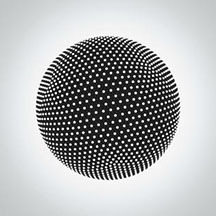
16. Altered State – Tesseract (2013)
Following the departure of lead singer Dan Tompkins, Tesseract went through a period of searching for the right person to replace him, beginning with Elliot Coleman's short-lived turn at the microphone, but ultimately settling on Ashe O'Hara. Perhaps it was kismet that it was during O'Hara's time in Tesseract that Altered State was recorded, as the new voice also heralded a new direction. O'Hara's silken voice was obviously best suited for clean vocals; all of Tompkins' guttural screaming went right out the window. That made emulating peers like Periphery essentially impossible, which also provided the band with an opportunity to reinvent themselves, tighten their sound, and be more adventurous (such as on the track "Of Reality: Calabi-Yau", where they underscore their blend of palm-muted heavy metal with the extremely unexpected wail of a saxophone, and actually pull it off). Consisting of four multi-song suites (Of Matter, Of Mind, Of Reality, and Of Energy), the album also contains extremely dense metaphysical lyrical material to match its heightened musicality. In combination, all of these new circumstances result in Altered State being nothing short of a miraculous metamorphosis for the band— Tesseract in a literal altered state.
Prime cuts: "Of Matter: Proxy", "Of Mind: Nocturne"
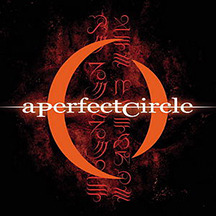
15. Mer de Noms – A Perfect Circle (2000)
Mer de Noms is a cryptic album, in the same way that Tool albums generally are. Furthermore, this is the only album of A Perfect Circle's where I really feel there's an apt comparison, if not in sound, then in attitude. Setting aside the music for a moment— can we talk about how much I geeked out over the band actually inventing their own arcane-looking alphabet to use in their liner notes? I was a nerdy teenager at the time I obtained this album, and being a lover of puzzles, naturally I decrypted it and then adopted it for my own use for encoding secret messages in my notebooks. But, I digress. What makes the music so interesting here, after listening to Tool for so long, is Maynard's voice being channeled into music with a completely different energy. Tool is logical, cerebral, and quite masculine; APC is much more of an emotional experience. That goes even for the harder-edged songs like "Judith", where Maynard's cry of "Fuck your God!" is intended less as a slight toward religion in general than as a frustrated outburst from a person who had watched his devout mother paralyzed in an accident when he was a child, and who was astounded that such a trial did not cause her to lose her faith. With nearly all of the song titles being names (hence the album's title, which translates to "sea of names" in French), much of the puzzle presented by this album comes from familiarity with the eponymous subjects; some are Biblical or legendary, while others are somehow personal connections to the band. But regardless of how much the listener may know about the myth of Orestes, the music is still a reward unto itself.
Prime cuts: "Judith", "Orestes"
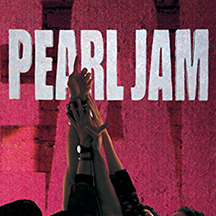
14. Ten – Pearl Jam (1991)
You know how certain songs are attached to memories or sensations so strongly, that you can't hear them without replaying those other associations in your head? Pearl Jam's Ten is like that for me. Yes, the entire album. It's an album that makes me feel the cool, crisp autumns of northern Georgia where I grew up, and see the leaves turning, and smell the hickory smoke of roadside boiled peanut vendors. It's an album that I see in dark reddish colors— maroon, sienna, burgundy. When I listen to "Black", I remember staying home from school for two weeks in 2001 due to a bad case of pneumonia, and the flannel blankets, and spending my daytime watching old episodes of SNL from the early 90s. When I listen to "Garden", I remember quiet, rainy nights in my on-campus apartment during my first year of college, just sitting in the dark after my roommates had gone to bed, drinking a cold glass of milk while watching the rain dance and glitter in the outside light with the windows narrowly slatted. When I listen to "Jeremy"— well, of course, that song makes me remember how terribly I was bullied all through middle school and ninth grade, and how reliant I was on that song to help me through one of the most miserable times of my life. (Seriously. This is another album I credit with literally keeping me alive.) I know none of this is concrete or tangible to anyone else but me, but… this is something that frustrates me about lists like this when music journalists write them. By the nature of their publication, they can't focus on the intangible impressions they get, because they're supposed to write about universally-appreciable things. In this case… I can't do that. Everyone already knows it's a goddamned brilliant album. But these impressions, and the way they make me feel— they're so strong here that they're basically half of the album's appeal to me, as far as I'm concerned. This is just an album that I've known so long, that it is deeply ingrained in me.
Prime cuts: "Jeremy", "Alive"
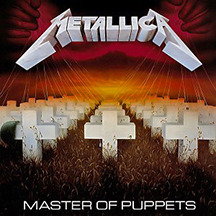
13. Master of Puppets – Metallica (1986)
I was introduced to Metallica (and heavy metal itself) in ninth grade by a classmate of mine named John. On one fateful extended class field trip to Mentone, Alabama, for a trust-building workshop, John lent me his copy of Master of Puppets to listen to during leisure time. I didn't know it at the time, as I sat on my cot in that cabin in the forest and listened to my Discman, but there was absolutely no better album to initiate me to metal. It was revelatory. Up to that time, I was still finding my taste. I had never heard music so hard-edged, or drumbeats so fast, or guitarwork so intricate before. And 8-minute songs? Being a prog rock fan who now routinely listens to songs two to three times that length, it's funny to think about in retrospect, but when I was that age, my attention span wasn't used to anything longer than 5 minutes. I was used to the stuff being played on the radio at the time— stuff like Smash Mouth and Sugar Ray. It should be a testament to how much of an earthshaking experience it was for me, that I still even remember the trip to Mentone (which was otherwise pretty forgettable, honestly). When I got back to Georgia, one of the first things I did was buy my own copy. There are eight songs here, and not a single weak one among them. Lars Ulrich's drums are on point. Kirk Hammett's guitar is on point. The lyrics, and James Hetfield's vocals, are on point. To this day, I still get goosebumps listening to the opening of "Damage Inc.", or the instrumental "Orion" as it slows down into a more laidback tune, led by the incomparable bass grooves of the late Cliff Burton. And in addition to being technically impressive, it was a cathartic album, too; this was the album that first allowed me to tap into my inner adolescent rage, and to release it. "Fuck it all and fucking no regrets", as they say. Wherever you are, John… thanks.
Prime cuts: "Master of Puppets", "Battery"

12. Superunknown – Soundgarden (1994)
It's sad for me to write this now, still only a few months out from Chris Cornell's passing. He was a hero to me when I was a teenager, and this was my first encounter with his music. First I got into Nirvana, then Pearl Jam, and then gradually I got into Soundgarden and Alice in Chains. Out of all the releases between the four of them, Superunknown is and probably always will be my personal favorite, even over Nevermind and Ten. The combination of Cornell's unearthly voice and Kim Thayil's guitar stirred something inside me that the others just couldn't quite reach. Maybe it's because, at the time, Soundgarden had been together longer than the other three bands, and they were able to reap the rewards of knowing and playing with each other for a longer time. Whatever the reason, it just felt (and still feels) to me like one of the most musically mature albums to come out of the whole grunge scene. And the sad thing is, I think a lot of people pay attention to it because of "Black Hole Sun" being such a gargantuan hit, and undersell the rest of the album. There are lesser known songs here, like the title track, or "Fresh Tendrils", or "Like Suicide", that are absolute sparkling gems. To listen to those songs, and to know now that the moment has passed, and that chemistry can never be truly replicated again with Cornell gone… it's really disheartening. But at least they left behind one hell of a masterpiece.
Prime cuts: "Black Hole Sun", "Superunknown"

11. The Dark Side of the Moon – Pink Floyd (1973)
Did you really expect me to leave this one off my list? Pink Floyd has been showing up on my list with a fair amount of frequency, and I saved the best one for last. I mean, it's almost ridiculous how clichéd it is to talk about this album as an example of a musical tour de force. It's practically to the point where I can just say the words "great album", and this will be one of the ones that people automatically think about. And as I sit here writing, trying to come up with something to say to rationalize my choice, I realize— there's probably no other album in my life which has served more as a soundtrack to the truly awesome moments. I've painted to this album, and felt the invigorating high of inspiration. I've synched it up with The Wizard of Oz, not once, but twice. I've played it while taking a breathtaking car ride through Badlands National Park in South Dakota. I've listened to it while watching a total solar eclipse. There's no other album that fits these kinds of experiences as well. It's an album that compresses time with its mellow nature, and causes 42 minutes to disappear so rapidly you can scarcely understand where they've gone. It's an album that simultaneously makes you feel insignificant, as a tiny human in a grand cosmos billions of lightyears and aeons large, and important, as someone fortunate enough to bear witness to the splendor of the universe. In short, about as close to perfection as an album can aspire to be.
Prime cuts: "Money", "Time"
At last, we’re down to the final 10. Which ones made the cut? Find out the first half tomorrow, with Part 6, featuring #10 - #6!
1 note
·
View note
Text
My Top 100 Favorite Albums of All Time (Part 4: 40 - 21)
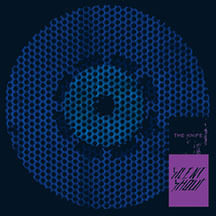
40. Silent Shout – The Knife (2006)
The first of two entries on this list involving experimental Swedish electronica musician Karin Dreijer Andersson, Silent Shout is a fine example of her most recognizable project, The Knife, which was essentially a collaboration with her brother Olof. The album is marked by an unmistakably Nordic sensibility, with a bizarrely sparse and wintry feel, and primarily narrated by Andersson in eerily pitch-shifted vocals that sound frail and petite at some points, and possessed by ghouls at others. Basically, imagine Björk on sulfur hexafluoride, and singing about the bodily decay of getting older, and you have a decent idea what to expect. There is something oddly unsettling about a female vocalist artificially lowering her voice into a male register, particularly for a song like "One Hit", which tackles the subject matter of male chauvinism rather bluntly. But if you stick around through the creepy and humorous bits, there are more than enough genuine moments which shine as well.
Prime cuts: "Silent Shout", "Marble House"

39. Animals – Pink Floyd (1977)
The shortest of Pink Floyd's masterpieces from the 1970s is also their angriest. With a narrative that borrows from George Orwell's Animal Farm, the album Animals is a forty-minute critique of the social stratification of capitalist society, with the band delivering surgically-precise attacks on businessmen, political authorities, and the unwitting masses who cede control of their ultimate fate to power-crazed crooks who couldn't care less. Some of my all-time favorite Pink Floyd lyrics come from this album, specifically because Roger Waters really did not pull any punches (including some particularly scathing lines directed at Margaret Thatcher and Christian morality advocate Mary Whitehouse).
Prime cuts: "Dogs", "Pigs (Three Different Ones)"

38. Lunatic Soul II – Lunatic Soul (2010)
As you might guess from the Roman numeral II in the title, Lunatic Soul II is actually a narrative sequel to Lunatic Soul's first album. Picking up where the last one left off, the story follows the protagonist through his further adventures in the afterlife. The album sets itself apart from its previous installment, however, by being a bit more kinetic: where the first part was content to tap into a wellspring of bittersweetness and melancholy and linger there, the emotional arc of the second part is a bit more daring and diverse. There are also fewer instrumental tracks here, which (as beautiful as they are) does seem to make a difference in the album's sense of gravity. Between the two albums, "Escape from ParadIce" is by far the wildest moment in the entire tale. And the story is wrapped up beautifully with "Wanderings", an epilogue containing a gentle electronic piano melody and echoed vocals, which (to me, at least) is vaguely reminiscent of 80s Phil Collins.
Prime cuts: "Suspended in Whiteness", "Escape from ParadIce"
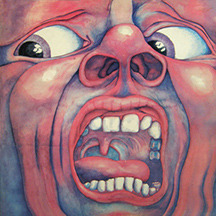
37. In the Court of the Crimson King – King Crimson (1969)
An absolute bona fide progressive rock classic, King Crimson's debut album is likely their most iconic, as well as the only one featuring the vocals of future Emerson Lake and Palmer singer Greg Lake. Consisting of only five songs, each between six and twelve minutes long, the album is largely a blend of jazz and classical influences with unabashed British psychedelia. Lest you think it a poor man's Pink Floyd, though, there's also a distinctly darker undertone and harder edge than most contemporary releases, especially noticeable on the first track, "21st Century Schizoid Man" and the elegiac "Epitaph" (the climax of which is just otherworldly). Simply put, there's a compelling case to be made that all of the subsequent hard progressive rock bands which I love so much– Porcupine Tree, Tool, and Riverside in particular– owe their existence largely to this album.
Prime cuts: "21st Century Schizoid Man", "The Court of the Crimson King"
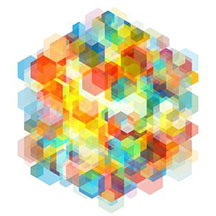
36. Polaris – Tesseract (2015)
With vocalist Dan Tompkins rejoining the band in 2014 after his 2011 departure (just after the release of One), Polaris finds Tesseract on familiar ground. But it's also obvious that the band had grown so much in the three years that they were apart. Ironically, by losing Tompkins, they actually found their voice, such that when he returned, all the posturing about forcing themselves to fit perfectly into a preconceived djent formula had been abandoned, and they were able to pursue a much more organic (and ambitious) trajectory. Polaris is a concept album, built on a narrative set in an apparently dystopian future. Unlike Tompkins' first recording with the band, there is nary a harsh vocal track to be found, save for the very end of "Cages" (but even that is toned down compared to earlier material). Instead, Tompkins is given free rein to contribute more melodic and technically impressive performances. When those vocals are combined with their matured instrumentalism, the result is an album which serves as a fantastic example of the ineffable expressiveness which makes Tesseract a compelling listen.
Prime cuts: "Survival", "Seven Names"
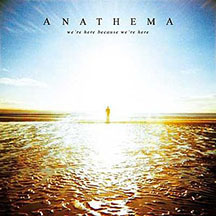
35. We're Here Because We're Here – Anathema (2010)
I mentioned this album by name in my self-published novel Even Stars Die, and for good reason. It was my first Anathema album (as well as the band's first album released with Kscope), and it succinctly evoked a sense of aesthetic appreciation and purpose at a time when I was going through an existential crisis (admittedly, a frequent occurrence in my life). Older Anathema fans may have been disappointed in the band's change in sound from doom metal to a friendlier sort of progressive rock, but the latter sound suits me just perfectly. From the first notes of "Thin Air", I was hooked. Then I heard "Summer Night Horizon", with its faster pace, haunting piano, and blazing guitars, and I was completely sold on the album after just two songs. The rest of the album continues in the same vein: "Everything" was the first Vincent Cavanagh and Lee Douglas duet which really struck a nerve with me, "Get Off Get Out" provides the back half of the album with a moment of raucous abandon, and the brief interlude "Presence" contains a vocal sample of a discussion about "com[ing] to terms with one's own mortality"– which, in my case, was actually extremely helpful and comforting in my own struggle with the subject. If being able to experience a beautiful album like this isn't a good reason to be alive, then what is?
Prime cuts: "Thin Air", "Summer Night Horizon"
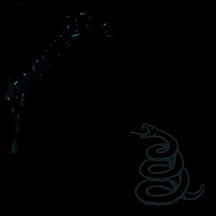
34. Metallica [Black Album] – Metallica (1991)
I find that the Black Album tends to be a polarizing album for Metallica fans. For some of us, it represented a band that was unwilling to continue rehashing the same formula over and over, and longed to grow and change as artists. For others, it was nothing less than a betrayal of the band's no-compromise 80s thrash metal roots, and the first signifier of a period in the band's history marked by shorter hair and the presence of some mellower songs. ("A ballad?! Metallica doesn't do fucking ballads, man!") But regardless of one's stance on the album, it's impossible to deny that it was a significant milestone in their discography, where they expanded from a niche audience of headbangers to a more mainstream acceptance. For me, this was among my earliest impressions of Metallica, during my era of adolescent rage, and it sounded suitably hard-edged to me. There's no contest: I'd much rather listen to "Sad But True" than listen to naysayers, any day of the week.
Prime cuts: "Enter Sandman", "Nothing Else Matters"
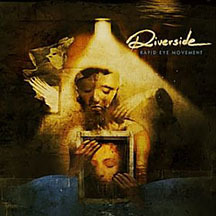
33. Rapid Eye Movement – Riverside (2007)
My initial introduction to Riverside's music (after discovering them via Lunatic Soul) was their third album, Rapid Eye Movement, which forms the final piece of a conceptual trilogy (the other two pieces being the albums Out of Myself and Second Life Syndrome). The album starts with a strong opening track, "Beyond the Eyelids", and transitions into a single-heavy first half containing "02 Panic Room", a bass-heavy song with a sound owing much to Tool, and the hypnotic Middle Eastern-influenced "Schizophrenic Prayer". The second half of the album quiets down a little, containing the two softer acoustic compositions "Through the Other Side" and "Embryonic", before launching into the 13-minute epic finale, "Ultimate Trip". Despite being the end of the trilogy's narrative, this was a great album to acquaint me with Riverside, as it displayed Mariusz Duda's vocal style, as well as the dynamic range of the band's material.
Prime cuts: "Schizophrenic Prayer", "02 Panic Room"
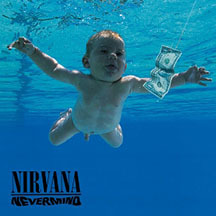
32. Nevermind – Nirvana (1991)
Admit it, you knew this album was going to show up on this list eventually. I mean, come on. I grew up in the 90s. Nevermind is an obligatory album for any 90s kid. It was only a matter of time. And really, what can I say about this recording that hasn't been said a million times before by music journalists and other list-makers? The only new thing I have to add is my personal experience, which can be summed up pretty succinctly in one word: revelatory. You want to know why I gravitate so strongly toward hard rock? Answer: Nevermind. This was the album that sealed the deal for me. Before Nevermind, I was a naïve kid struggling to figure out what sort of modern music he liked. I was 14 or 15 when I bought my copy, and I never looked back. I suddenly knew exactly what kind of music really spoke to me. In terms of the development of my musical tastes, I really can't think of many others that were quite as pivotal to me.
Prime cuts: "Smells Like Teen Spirit", "Come as You Are"
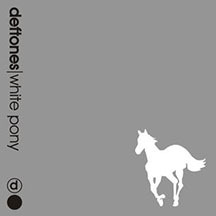
31. White Pony – Deftones (2000)
I came for Maynard James Keenan's appearance on "Passenger", and stayed for the rest of the album. After all, Deftones has been one of the biggest success stories to emerge out of the initial wave of nu metal bands in the 90s– a band that was able to transcend the angst and adapt to changing tastes. Their third album White Pony was a watershed moment– simultaneously breaking new ground for them, and also becoming one of their most massive commercial hits ever. Singles "Change (In the House of Flies)" and "Digital Bath" (and on the reissue, "Back to School (Mini Maggit)") received heavy airplay on rock radio and MTV, while "Rx Queen" and "Knife Prty" contribute some of the album's more affecting and experimental moments. Nearly two decades later, it still holds up as an outlier in a genre that wasn't exactly known for being adventurous or introspective.
Prime cuts: "Digital Bath", "Change (In the House of Flies)"
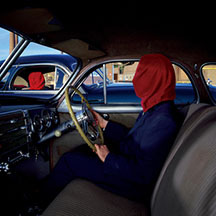
30. Frances the Mute – The Mars Volta (2005)
Frances the Mute was released in the summer between my first and second years of college, while I was living in Florida. I had seen the video for "The Widow" on TV, and decided to give the album a listen. Boy, was I surprised. This was an album that signified to me that progressive rock (as it had existed before Tool infused it with metal and alternative influences) was back en vogue. The introduction of Latin musical influences was an added bonus, as far as I was concerned; it gave the music a very distinct flavor which I could never mistake for any other band, and it seemed oddly appropriate for my surroundings, being in a state with such a strong Hispanic cultural presence. With the dynamite mix of Cedric Bixler-Zavala's high vocals and Omar Rodriguez-Lopez's guitar presence, the Mars Volta quickly became one of my favorite new bands of the 2000s, and remains inseparably bound to my memories of my time at Ringling like no other band does.
Prime cuts: "The Widow", "L'Via L'Viaquez"
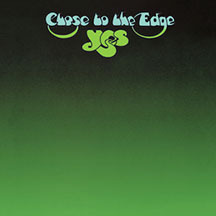
29. Close to the Edge – Yes (1972)
A few years ago, I acquired a copy of Hermann Hesse's Siddhartha, and read it cover to cover. It was a rare, transcendent and transformational experience; upon finishing the book, I felt instantly electrified with a keen understanding of the tapestry of joy and suffering which we call life. Close to the Edge is Siddhartha in musical form, more or less. The album's title track was inspired by the book, and through its nearly 19 minutes of jaunty prog grooves— including a truly divine and thunderous church organ interlude— it actually does manage somehow to replicate the vivified sensation I got from reading the book. There are only two other tracks on the album: the sweeping "And You and I", and the churning "Siberian Khatru", both of which are brilliant in their own right. Much ado has been made of the excesses and pretentiousness which cast the original wave of 60s and 70s prog rock into the realm of unintentional self-parody. True to its name, however, Close to the Edge gets right up on that line without ever crossing it, instead finding the perfect sweet spot between too much and not enough.
Prime cuts: "Close to the Edge", "Siberian Khatru"
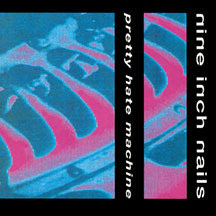
28. Pretty Hate Machine – Nine Inch Nails (1989)
And thus, a legend was born. Being the earliest of Trent Reznor's work under the nom de guerre of Nine Inch Nails, Pretty Hate Machine is a recording that (it always seemed to me) still has the vitality of a new band to it. It's an exception to so many of the ground rules that govern Reznor's later work. It's sappily emotional in ways that The Downward Spiral wasn't. It's easily dated by its sound palette in a way that The Fragile isn't. And for all its discontent, it's still quite upbeat and danceable at times, in a way that Year Zero never could be. Pretty Hate Machine sounds exactly as one would imagine Reznor's work to have sounded in the 1980s, which is to say, a higher ratio of synthpop in its DNA. It may have been eclipsed by some subsequent releases, but it is still a solid album, and a true classic of early industrial music.
Prime cuts: "Head Like a Hole", "Terrible Lie"
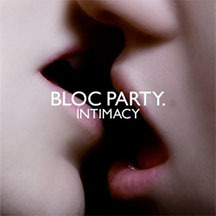
27. Intimacy – Bloc Party (2008)
Say what you will. I know some people listened to this album (particularly its leading single, "Mercury"), and weren't feeling it, especially compared to the band's earlier material. I get that. It was a bold change of pace for Bloc Party, and I'm not sure if it was completely successful in what it was trying to accomplish. But there were enough great moments on this album— the chaotic percussion warfare and guitar bombast of opener "Ares", the heartwrenchingly bittersweet "Biko", and of course, "Talons", which quickly became my second favorite Bloc Party after "Banquet"— that the missteps didn't matter to me. When I got my copy of this album, I played it ad nauseum, until I knew it intimately (ba dum tssh). I can't hate on it for experimenting, or for being too sentimental. Both of those things are things I actually sort of applaud in music, and wish I saw more. And I got a little extra bonus with my copy, since my version also included "Letter to My Son", "Your Visits Are Getting Shorter", and Bloc Party's first foray into house music, "Flux". Moreover, I have a real attachment to the album now, because it represents a time in my life that was actually pretty happy for me, which has been a bit of a rarity— I was a student at Emily Carr, completely in my element, I had a fulfilling social life, and I was just generally enjoying my surroundings in Canada. So maybe I'm biased a little, but there was just no way I could leave this album off the list.
Prime cuts: "Talons", "Biko"
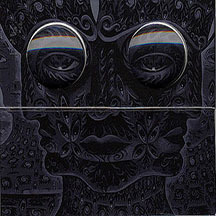
26. 10,000 Days – Tool (2006)
Here's how you know we're getting closer to #1: Tool albums start showing up. Aside from a single album by A Perfect Circle and a few guest appearances on other albums, Maynard James Keenan hasn't really made any appearances yet. That changes now. Ostensibly Maynard's tribute to his late mother, the title of 10,000 Days refers to the nearly three decades between her paralysis due to an accident and her passing. Coming from a band that found its niche in extremely cerebral music, the album was surprisingly personal and emotional. Of course, there is still some heady fare here, as in openers "Vicarious" and "Jambi". And their trademark offbeat humor is on display as well, as "Lost Keys (Blame Hofmann)" briefly sets up a scenario involving an LSD-induced hospital visit, and then segues into "Rosetta Stoned", with the stoner in question describing (in barely coherent terms) being visited by extraterrestrials and anointed 'the chosen one'. Sadly, at 11 years and counting, 10,000 Days is still the band's most recent release (and we're all hoping to see a new one sooner than 10,000 days)— but at least we have a solid album to listen to while waiting.
Prime cuts: "Vicarious", "Rosetta Stoned"
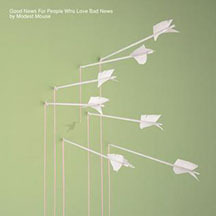
25. Good News for People Who Love Bad News – Modest Mouse (2004)
This album has the unique distinction of being doubly nostalgic for me— that is, it simultaneously conjures up strong memories of two different periods in my life. The first is from my freshman year at Ringling College back in 2004, right after the album was released. I recall very distinctly that one of my roommates owned it, and played it in the car while we went on grocery runs. At that time, I wasn't sure what to think of it; Modest Mouse didn't really seem to have a place in my music collection, among my Tool and Metallica and Nine Inch Nails. By the time I heard it again, though, I was coming around. It didn't hurt that my second real experience with Good News… was around 2007, when I realized my friend Laurie was a fan of Modest Mouse. That instantly caused me to take another listen. And because I had both of those experiences soundtracked by the same album, I now strongly associate Good News... with my coming-of-age and independence; after all, both points in my life were times when I had gained a new level of self-reliance and freedom.
Prime cuts: "Float On", "Ocean Breathes Salty"
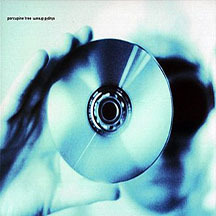
24. Stupid Dream – Porcupine Tree (1999)
As mentioned earlier, Porcupine Tree spent the majority of the 90s in the realm of psychedelia and space rock, filling the void left behind by the decline of Pink Floyd. Following the release of 1997's Signify, however, the band went through a massive recalibration in terms of its sound, shifting toward a much more straightforward radio-friendly alternative rock sound. Stupid Dream is the first album where this change is apparent. It's also the first to demonstrate Steven Wilson's long love/hate relationship with the recording industry; the album's lead single (and the band's very first charting song), "Piano Lessons", is an anthem of disillusionment with the over-commercialized nature of modern music and the 'stupid dream' of being able to reach the masses with an intelligent, heartfelt message, which works well as the album's thesis statement. My personal highlight on the album, however, is "Don't Hate Me", which is set apart from other Porcupine Tree songs up to that point by its slow, steady bass groove, its prominent flute and saxophone sections, and its tone of longing desperation. It was at this point where Porcupine Tree really started to develop into a force with which to be reckoned.
Prime cuts: "Don't Hate Me", "Piano Lessons"
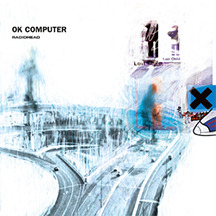
23. OK Computer – Radiohead (1997)
How does one add anything new to a discussion about an album that is widely regarded as one of the greatest albums of the past 20 years? This is an album that has been constantly picked apart and analyzed by music journalists, favorably compared to Dark Side of the Moon, and placed on so many "Greatest Albums" lists that it is in serious danger of becoming as much a cliché as Nevermind or Sgt. Pepper's. Can it possibly live up to all of that hype? Well… yeah. At least, I think so. In retrospect, I think some of the hype is due to the fact that it was really the final album of Radiohead's alt-rock period, where they sounded like what people expected them to sound like— i.e., the second coming of the British Invasion, for a Gen X audience. In contrast, OK Computer's immediate successor was such a radical about-face that it scared off many fans who were looking for a logical progression along the same vector (and, it could be argued, launched Coldplay's career as a result). But underneath all of the hype, and behind the iconic songs about unborn chicken voices and detuned radios, there really is a substantive, smart, emotionally powerful piece of artwork here. This is the rare moment where the stars align, and there is a perfect confluence of mainstream appeal, critical acceptance, and genuinely thought-provoking artistry.
Prime cuts: "Paranoid Android", "Karma Police"
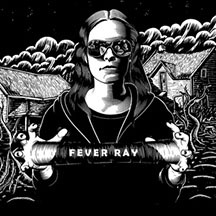
22. Fever Ray – Fever Ray (2009)
Fever Ray was the name given to the solo project of Karin Dreijer Andersson of The Knife, already mentioned earlier in this list. The self-titled album begins with the relentless droning of "If I Had a Heart", a song which, by its bellicose, minimalistic melody, seems to portend an Apache raid. The majority of the album seems to have a pall of inky darkness over it— not so much a depressing darkness, as a black haze that obscures sight and shrouds everything in shadow. A few bright shafts of light occasionally break through, as in the childlike "When I Grow Up" and "Seven" and the quirkily upbeat "Triangle Walks", but duskier tracks like "Concrete Walls" and "Keep the Streets Empty for Me" are the norm.
Prime cuts: "Triangle Walks", "Keep the Streets Empty for Me"
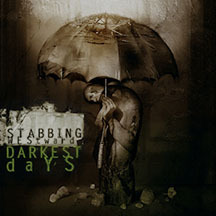
21. Darkest Days – Stabbing Westward (1998)
Sometimes, no matter how much you try to keep moving forward, it's inevitable that there will be vulnerable moments. I've had a lot of those. For me, the battle with depression has been a long and draining one. And when I feel myself spiraling downward, like I break everything I touch, often one of the best ways for me to work through it is to envelop myself in music that seems as bleak as me. On many occasions, Darkest Days has truly been a savior. With 16 tracks, it is by a wide margin Stabbing Westward's longest release; it is also their magnum opus, the true highlight of their catalog of industrial rock. Darkest Days is a concept album based on the experience of a break-up, as the relationship moves through unhealthy self-sabotaging and fixation, into a post-separation cycle of pain, regret, depression, anger, and finally, reluctant acceptance. While singles "Save Yourself" and "Sometimes It Hurts" may be among the band's most recognized material, and "How Can I Hold On" deserves an honorable mention for its wicked mixture of computer beats and Christopher Hall's unmistakable vocals, it is the heartrending final track, "Waking Up Beside You", which really is praiseworthy for being a stellar composition— possibly the greatest song the band ever produced. Darkest Days has served me well as an emotional counterbalance from my teen years into my thirties. For that reason, I see it as an indispensable part of my music library.
Prime cuts: "Save Yourself", "Waking Up Beside You"
We’re getting much closer now! Next time: we crack the Top 20, with Part 5 (#20-11)!
0 notes
Text
My Top 100 Favorite Albums of All Time (Part 3: 60 - 41)
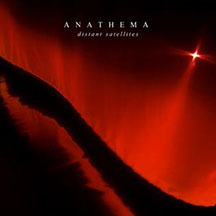
60. Distant Satellites – Anathema (2014)
As an album, Distant Satellites is much darker than its two predecessors—but it's a seductive kind of darkness. The bright hopeful tones of Anathema's first two Kscope releases are replaced here by a sense of cosmic vastness which is inherently isolating, but also charming in its mystique. In a sense, it feels like the night to Weather Systems's day. The music is still gracefully dramatic, the vocal duo of Cavanagh and Douglas are still electric together… but after the somber organ instrumental "Firelight", the final two songs on the album reveal there's also a sting in its tail, a new element which had not appeared as prominently before: electronic drum tracking, like outtakes from an Aphex Twin recording. For me, it doesn't get much better than the title track, which exudes an eerie remoteness about it which resonates deeply with me. Above all, this album is a reminder that twilight can be just as beautiful (or even more so) than high noon.
Prime cuts: "Distant Satellites", "The Lost Song, Pt. 1"
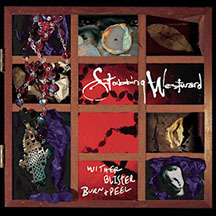
59. Wither Blister Burn + Peel – Stabbing Westward (1996)
Stabbing Westward's first appearance on my list (but certainly not their last) is their second album, a modestly successful recording that saw them polish their blend of industrial into a more commercially viable sound. Many at the time accused Stabbing Westward of riding Trent Reznor's leather coattails, but I completely disagree—while both SW and NIN are indeed both practitioners of electronic rock, and it's true that both can be massive downers in their own way, there is no mistaking that they are thematically quite different, and both had something to offer fans of the genre which the other did not. Nine Inch Nails was built primarily on a foundation of nihilism, while Stabbing Westward was more successful when writing songs about difficulty navigating relationships. As a result, Stabbing Westward always felt a little more human than machine to me, while NIN during the same time period felt like the opposite. Wither Blister Burn + Peel is where this distinction really started to become much clearer.
Prime cuts: "Shame", "What Do I Have to Do?"

58. One – Tesseract (2011)
Ah, djent. Such a bittersweet discovery for me. On the one hand, I have to confess that I'm truthfully not a fan of the growled vocal stylings of Meshuggah, the band which most other djent bands claim is their primary inspiration. I also don't like the condescending way fans of djent disdain "clean vocals" (I know it makes me sound old and out of touch, but in my day, we called clean vocals "actual singing"). Since a lot of djent bands (Periphery, Veil of Maya, Vildhjarta) also emulate Meshuggah's vocal style in addition to the palm-muted staccato guitars and odd time signatures, it doesn't really give me much from which to choose. There are a few djent acts that are entirely instrumental, which is fine, I guess—but then, there's Tesseract, which has quickly become one of my favorite new bands of this decade. Tesseract is everything I could ask for in a djent band: progressive, hard-edged music, but with vocals that don't make me feel like gouging out my eardrums with an icepick. In fairness, there is some of that on their debut album, One… but it doesn't bother me quite as much in this case, most likely because it's offset by the clean vocals rather than being constant and unceasing. Furthermore, their approach to clean vocals is intriguing, and at times, ethereal—something I haven't heard before. Comprised of the massive half-hour long suite "Concealing Fate", as well as a few extra songs to balance it out, One is a solid debut from a band that seems like a natural evolution from the progressive metal with which I grew up.
Prime cuts: "Eden", "Lament"
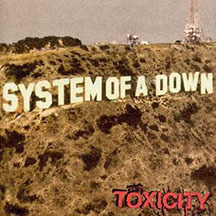
57. Toxicity – System of a Down (2001)
Here's another album that was absolutely the right album for its time—in this case, right around the time of 9/11. Released only one week before the attacks, and containing a nu metal blend rife with politics and flavored heavily with Middle Eastern rhythms (befitting the band's Armenian heritage), Toxicity became an unwitting soundtrack to the dawn of the War on Terror, and remains incredibly relevant to this day. As anyone who was alive at the time can tell you, that day was a big turning point in my life; I was a high school sophomore, and I knew, watching it unfold live on the classroom television, that things would never be the same again. So, in a very real sense, Toxicity also became the funeral music of my adolescent innocence, and the signifier of a new and sometimes scary chapter in my life.
Prime cuts: "Chop Suey!", "Aerials"
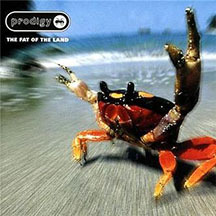
56. The Fat of the Land – The Prodigy (1997)
You may have noticed a trend among the music on this list, toward hard rock, metal, alternative and progressive. That doesn't prevent me from enjoying the occasional outlier, however— particularly techno. I received a copy of The Fat of the Land during my first year of college in Florida, from my roommate who graciously allowed me to burn a copy from his disc. I was already acquainted with the Prodigy through the infamous music video for "Smack My Bitch Up" (which was banned from daytime airplay on MTV, but eventually played in its uncensored entirety during a countdown of controversial videos on MTV2). The album turned out to be a huge energy boost anytime I heard it, like downing a case of Red Bulls (which was great, since I had 8 AM morning classes to walk to). And despite branching out into electronica, something about it seemed more familiar than alien to me, even from the start. I was already a disciple of industrial acts Nine Inch Nails, Ministry and Stabbing Westward. Keith Flint's bombastic vocals, especially on tracks "Firestarter" and "Serial Thrilla", seemed to belong more to a lost Sex Pistols bootleg than an album of dance music. "Funky Shit" prominently features a sample of the Beastie Boys' "Root Down". And, fun fact! Drum fills for some of the songs were provided by Soundgarden and Pearl Jam drummer Matt Cameron. Overall, it was a great album to introduce me to techno as a fan of hard rock, and I still listen to it whenever I need to get pumped.
Prime cuts: "Smack My Bitch Up", "Firestarter"
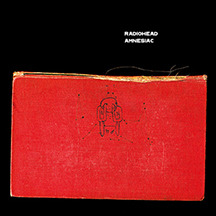
55. Amnesiac – Radiohead (2001)
Originating as a collection of leftover material from their experimental album Kid A, Radiohead's Amnesiac does feel undeniably linked to its predecessor. Like the rest of the band's discography up to 2006, I was introduced to Amnesiac through my friend Laurie around the time I moved to British Columbia. The transcendent gem "Pyramid Song" and the gently lilting slow burn "You and Whose Army?" were the two songs here that stick out in my memories of being with her. The back end of Amnesiac, with the classically orchestrated "Dollars and Cents", the sparse instrumental "Hunting Bears", the backward hum of "Spinning Plates", and the jazz-tinted "Life in a Glass House", is about as far away from the Brit-rock of OK Computer as the band could possibly get— and within the span of 4 years, no less!
Prime cuts: "Pyramid Song", "Knives Out"
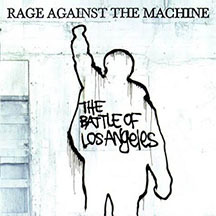
54. The Battle of Los Angeles – Rage Against the Machine (1999)
Although their self-titled album is generally lauded as one of the biggest game changers in rock of the past 30 years, and their second album Evil Empire was a success in its own right, I maintain that their true magnum opus is The Battle of Los Angeles. Buoyed by the trifecta of "Testify", "Guerrilla Radio", and "Sleep Now in the Fire", the album is the pinnacle of the band's bombastic, politically-motivated sound. This is the album where all the elements really fell into place: Zack de la Roca's rapid-fire agitprop, Tom Morello's guitar-as-turntable-and-sound-effects, Tim Commerford's bassline grooves, and an absolutely impeccable balance between hard rock, hip-hop, and street corner preaching.
Prime cuts: "Guerrilla Radio", "Testify"
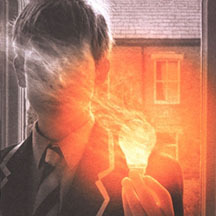
53. Lightbulb Sun – Porcupine Tree (2000)
"Russia on Ice" has the distinction of being my absolute favorite Porcupine Tree song of all time. So, I hear you ask, why isn't Lightbulb Sun higher on the list than #53? Well, the simple answer is that I feel there are a few Porcupine Tree albums that are stronger as a whole, rather than having a single song that I really, really like. That isn't to disparage this album at all, though. It's still solid work. Lightbulb Sun was released in the midst of Porcupine Tree's transition from their 90s neo-psychedelic period into their 2000s alt-rock and prog metal sound. As such, it's a bit more grounded than much of the band's previous work to that point, while still bearing markers of both the past and the yet-to-come. All the band's familiar stylistic trappings are here: unique ambient textures, resigned introspective lyrics, and at least one song showcasing Steven Wilson being critical of the music industry for foisting mindless, repetitive garbage on the masses ("Four Chords That Made a Million"). Not quite the perfect iteration of the formula, but damn close.
Prime cuts: "Lightbulb Sun", "Russia on Ice"
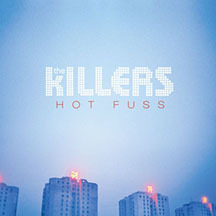
52. Hot Fuss – The Killers (2004)
In the fall of 2007, after moving to a small basement apartment in Surrey, BC, my musical tastes were rapidly changing. It was a two-month period, before I even got to Vancouver, where I was simply trying to adjust to the reality of living in a different country. In the midst of the sudden exposure to Bloc Party, Radiohead and Muse, I found myself looking backward a couple of years, to the Killers' debut album. I had heard "Somebody Told Me" and "Mr. Brightside" many times on TV or the radio, and since I was reinventing myself a bit, I figured I'd add it to my library as well. Hot Fuss is unusually strong for a debut album, with the band presenting its basic thesis as a fully-formed distinctive blend of indie and new wave. While much of the aesthetic of the time was stuck in 1970s nostalgia, the Killers were a bit further ahead, in the 1980s, which I appreciated tremendously. If nothing else, the band showed with this album that they've got soul (but they're not soldiers).
Prime cuts: "Somebody Told Me", "All These Things That I've Done"
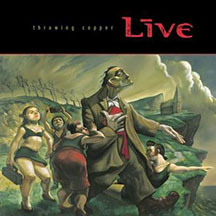
51. Throwing Copper – Live (1994)
Despite being around for over two decades now, Throwing Copper is, I confess, a relatively recent addition to my music library. This is not to say that I can't acknowledge its greatness, though. With Ed Kowalczyk's piercing vocals giving the band the feel of an edgier version of R.E.M., Pennsylvania band Live's most commercially successful album is a soulful mix of the sacred and profane, jam-packed with 90s alt-rock gems like "Selling the Drama", "I Alone", and "All Over You". The climax, of course, comes with "Lightning Crashes", an unforgettable slow-burn ballad about the cycle of life that begins with the gentlest of guitar chords and gradually grows into a beautiful powerhouse. It's an artifact from a time when Seattle was still the center of the musical universe, presented from a perspective that is distinctly un-Seattle— and for me, it was an instant favorite.
Prime cuts: "Lightning Crashes", "I Alone"
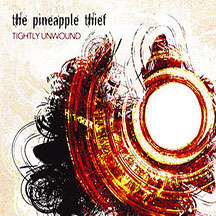
50. Tightly Unwound – The Pineapple Thief (2008)
As with Lunatic Soul (see #67 on this list), my discovery of Tightly Unwound, and of the Pineapple Thief in general, was the result of the very same Kscope sampler disc; the song "Tightly Wound" was one of the songs included. This is an album I would recommend to prog fans looking to convert their non-prog friends, as the progressive elements here are at first quite subtle and well-camouflaged beneath catchy alt-rock hooks and acoustic melodies. In that respect, the first half of the album is comparable to pre-Kid A Radiohead. Only two songs here crack the ten-minute mark: "Different World" and the album's fantastic closer, "Too Much to Lose", an emotional rollercoaster that starts with a wistful, rainy-day lament, cycles through an ominous instrumental and a tense spoken word section over a wicked breakbeat, adds a bass clarinet and MIDI steel drums to the mix for good measure (because why the hell not?), and finishes with electric guitars blazing. It's a strong contender for my favorite prog rock album of the 2000s to not involve Steven Wilson or Maynard James Keenan.
Prime cuts: "Tightly Wound", "Shoot First"
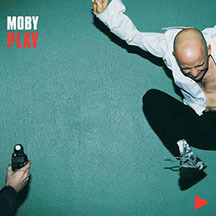
49. Play – Moby (1999)
Play might seem like an odd pick for a diehard rock fan like myself, but truthfully, it's an album I've only grown to enjoy more over time. I bought my copy about a year or two after it was released, when I was a teenager with a taste for contemporary music that was still in its formative stages. I had seen videos for "Natural Blues" and "Porcelain" on VH-1, and had been curious enough to buy a copy (along with my copy of Nirvana's Nevermind). I confess, I didn't know at the time what I was really buying, though. There was something I couldn't quite describe about Play, a very strange quality that seemed simultaneously familiar and foreign. All I knew was, I liked it. As I got older and my tastes matured, I learned more about the production of Play, and realized the ineffable property I had ascribed to it was a result of the juxtaposition of Moby's modern-sounding electronica and dance beats with samples taken from rustic traditional Southern folk and gospel songs, as archived by Alan Lomax in the mid-20th Century. I had never before been introduced to such a radical blend of old and new elements, and as a result, my musical tastes were broadened in a way I truly hadn't expected. To this day, Play is one of my main go-to albums on the uncommon occasions when I'm not feeling like rock (which, I assure you, does happen from time to time).
Prime cuts: "Natural Blues", "Run On"
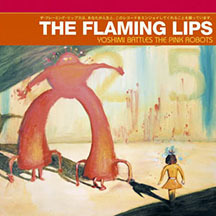
48. Yoshimi Battles the Pink Robots – The Flaming Lips (2002)
I was late to the party on this one. While "Do You Realize??" was making itself known as the new millennium indie scene's signature memento mori back in 2002, I was… not into it. I was too busy headbanging to notice. It wasn't until many years later, after moving to Canada, that I acquired a copy of Yoshimi Battles the Pink Robots from my friend Marcos. By then, I was surrounded by friends with differing musical tastes and was a little less rigid with what I was willing to listen to. At its core, Yoshimi is a conceptual album, focused on a collection of sci-fi inspired narratives involving subjects such as automatons and time travel. It's also an unabashedly trippy album, mixing elements of 70s psychedelic rock with 90s hip-hop beats. The result is a recording that truly holds up as timeless and fresh.
Prime cuts: "Do You Realize??", "Fight Test"
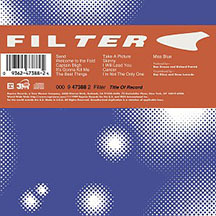
47. Title of Record – Filter (1999)
Here's another instance of a band's second album being a gigantic leap forward from their first. Filter was originally born out of Richard Patrick's parting of ways with Nine Inch Nails, with whom he served as a guitarist circa Pretty Hate Machine and the Broken EP. Filter's first album Short Bus (which boasted perennial favorite "Hey Man Nice Shot") was gritty, raw, unpolished, and in many ways, an extension of Broken-- an avenue not taken by Reznor himself, who went on to develop The Downward Spiral. Over the next few years, Filter's only additional material was a handful of soundtrack contributions. By the time a second album was ready, the band's composition had drastically changed, with Patrick's collaborator Brian Liesegang being replaced full-time with the touring musicians. The change resulted in Title of Record, an album that is far more cohesive, polished and listenable than Short Bus. The album begins with the short ambient track "Sand" (which seems to resemble phenomenon called 'singing sand', where desert sand dunes produce an eerie hum as the grains collide with each other), which makes a kick-ass segue into the guitar-heavy thrashing of "Welcome to the Fold". Of course, the album's claim to fame is "Take a Picture", which saw heavy rotation on rock radio in the year 2000 and became the band's most well-known hit. Beyond that, though, there are plenty of other great songs worthy of a listen. (For me, the climax of this album is and will always be about 4:40 into "Cancer", when the song really hits its stride. Goosebumps, every time.)
Prime cuts: "Take a Picture", "The Best Things"
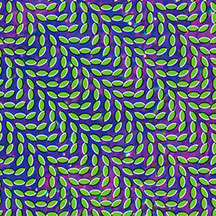
46. Merriweather Post Pavilion – Animal Collective (2009)
I'll admit, when I first listened to a few songs from Merriweather Post Pavilion, I really wasn't sure whether I liked it or not. Animal Collective struck me as too experimental for my tastes. Then I heard "In the Flowers", with its slow build to an abrupt throbbing electronica crescendo, and I was hooked. From that point on, I knew that the good buzz I had heard about this album wasn't just talk. Imagine tossing the Beach Boys' Pet Sounds into a blender with Paul Simon's Graceland (and a pinch of LSD), and you'll have a decent approximation of the terrain covered here.
Prime cuts: "My Girls", "Summertime Clothes"
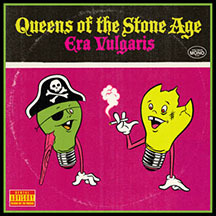
45. Era Vulgaris – Queens of the Stone Age (2007)
I think of this as my SkyTrain album. The SkyTrain, for those of you who've never been to Vancouver, is the city's subway system (although most of it is actually elevated above ground, hence the name). Whenever I had someplace to go on the SkyTrain, I found a seat, put on my headphones, and Era Vulgaris became my designated album of choice. With its textures of electric buzzing and occasional lapses into frenetic repetition, it meshed perfectly with the experience of being in an automated urban environment for the better part of an hour.
Prime cuts: "3's and 7's", "Misfit Love"
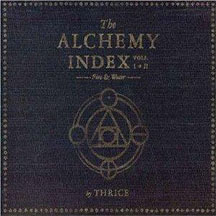
44. The Alchemy Index, Vols. I & II – Thrice (2007)
Each of the four EP-length discs comprising Thrice's concept album The Alchemy Index is themed around one of the four classical elements. The second half of the album, containing Vol. III (Air) and Vol. IV (Earth) was staggered by a few months and released in April 2008. The first half, released in October 2007, consists of the other two elements: Vol. I is Fire, and Vol. II is Water. And as you might expect from two diametrically opposed elements, the discs couldn't sound more different. While the Fire disc lives up to its namesake by assuming a blazingly hard-edged post-hardcore sound, the Water disc sees the band channeling Depeche Mode and venturing into cool, mellow synthpop. There's a hint of sonic irony here, as the lyrics of the sonnets which mark the end of each disc depict fire as cursing its own submissiveness to be used as a tool of destruction, and water (or, more correctly, the sea) as a raging, untamable force of nature. While Air and Earth did add their own valuable contributions to the concept, it was the first two volumes which established the foundation, and which I find the most interesting on subsequent listens.
Prime cuts: "Digital Sea", "Firebreather"
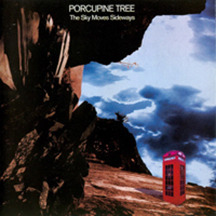
43. The Sky Moves Sideways – Porcupine Tree (1995)
Here we have the only one of Porcupine Tree's early psychedelic albums to make my list. Truthfully, I love Up the Downstair and Signify in their own ways as well, but for me, The Sky Moves Sideways is their earliest crowning achievement worth recognition here. This album demonstrates the band's closest approach to being Pink Floyd's 90s successors, with its structure even paralleling that of Wish You Were Here—a several-part suite broken into two bookends at the beginning and end of the album, with a few smaller, more digestible songs in between. The version I own is the two-disc expanded remaster, which features the early Porcupine Tree mainstay "Stars Die" on the second disc. With samples of Richard Nixon's phone call to the Apollo 11 astronauts contained within, it's little wonder that the band has sometimes been regarded as Pink Floyd: The Next Generation in its early years.
Prime cuts: "The Sky Moves Sideways [Phase One]", "Stars Die"
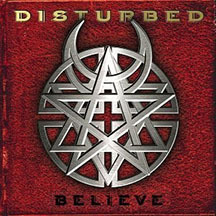
42. Believe – Disturbed (2002)
Looking back on the nu metal scene in retrospect from 2017, it can be very tempting to be completely dismissive of it as an ugly, hostile, puerile phase that rock went through, as it was experiencing the hangover after the death of grunge and the over-commercialization of alternative. I mean, I used to listen to Korn a lot as a teenager, and I have to admit, I'm a little embarrassed to admit that. (It's worth noting, but I did not include any of their albums on my list.) It's… a little galling to think of a time when the mainstream actually took Fred Durst and Kid Rock seriously. And if you look at only their first album, the same reflex might kick in when mentioning Disturbed. Everybody remembers "Down with the Sickness", and David Draiman's notorious rhythmic grunt is usually the go-to reference point when mentioning them to casual listeners. But their second album is actually unusually solid, in a way that somehow avoids being tarnished by nu metal's own expiration date. This isn't just more of the same— it's a respectable, honest-to-goodness, serious heavy metal album from a band that was not afraid to grow and break free of the labels placed on them by the music press. The real shocker here, of course, was the album's final track, "Darkness", where Draiman went against all of the nu metal conventions about angsty vocals, shod his usual vocal style, and demonstrated his true, remarkable melodic singing voice for the first time. It's such a revelatory moment, that I distinctly remember hearing it for the first time and thinking it was a guest vocalist, and then being absolutely astounded when I realized it wasn't. Now that's the way to end a fantastic album.
Prime cuts: "Remember", "Liberate"
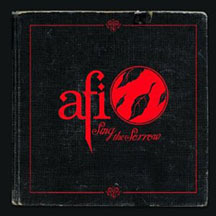
41. Sing the Sorrow – AFI (2003)
Adolescence is a dramatic experience. No one seems to truly understand the emotional turmoil inside the head of a teenager. For me, that turmoil was mediated a bit by Sing the Sorrow, AFI's breakthrough album comprised of intricately-crafted punk rock opera. Released during my junior year of high school, firmly in the middle of my "wearing black" phase (although I never considered myself a full-blown goth), the album successfully tapped a raw reserve of feelings inside me that nothing else ever did at that time, and its sheer poeticism in defiance of the simple-minded pop junk being promoted by the music industry left me feeling hopeful that my own voice could be heard as well. From the opening chants of "Miseria Cantare – The Beginning" to the wistful, fading ending of hidden track "This Time Imperfect", the album became the perfect expression of my teenage disaffection. It's also the album I would credit with opening the door for emo-punk bands like My Chemical Romance and Panic! at the Disco to emerge and take the mainstream by storm.
Prime cuts: "Girl's Not Grey", "The Leaving Song, Pt. 2"
Next time: Part 4 (#40 - 21)!
0 notes
Text
My Top 100 Favorite Albums of All Time (Part 2: 80 - 61)

80. Karmacode – Lacuna Coil (2006)
My first exposure to the Italian metal band Lacuna Coil was in college in Florida, when I discovered their breakthrough album, Comalies. The album was an interesting formulation of gothic metal with occasional flourishes of electronica, and I was immediately awestruck by Cristina Scabbia's lush vocals. Although perhaps a bit melodramatic for my usual tastes, it was certainly enough to make me take notice of any of the band's subsequent releases. So, years later, when they finally released a follow-up, Karmacode— I cannot overstate this— I was not prepared for the monumental shift in sound. Karmacode was a calculated move away from their old sound, and into the realm of Middle Eastern-influenced nu metal, in a similar vein as Disturbed. While such a move might seem counterintuitive at a time when nu metal's popularity was already waning from its former glory days, in this case the genre recasting totally worked. Lacuna Coil's new direction actually seemed to add an entirely new dimension of gravity that hadn't quite reached critical mass on the previous album—and the cherry on top was their inclusion of a cover of the Depeche Mode classic "Enjoy the Silence" as the album's finale. It was a remarkable change for the better, so far as I was concerned, and one to which I gladly listened.
Prime cuts: "Closer", "Our Truth"
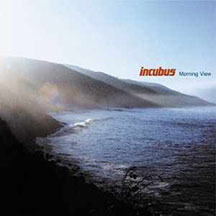
79. Morning View – Incubus (2001)
Brandon Boyd knows the way to make a point with an interesting turn of phrase. On Morning View, his lyrics show even more wit and poeticism than they did on Make Yourself, building metaphors on such premises as references to Uri Geller's spoonbending, the cautionary story of frogs slowly being acclimatized to boiling water, and fingernails on a chalkboard— all while the words maintain their overall insightfulness. Musically, despite not being quite as hard-edged as the previous album, Morning View still holds interest by displaying a more mature and experimental approach, mixing smooth rock jams like "Echo" and "Are You In?" with the tranquil Eastern vibe of "Aqueous Transmission". It's an admirable mark of progression, which demonstrates that change and growth doesn't necessarily have to mean sacrificing popular appeal.
Prime cuts: "Nice to Know You", "Under My Umbrella"
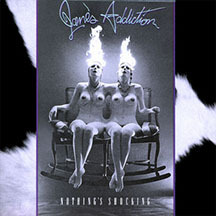
78. Nothing's Shocking – Jane's Addiction (1988)
…And while we're on the subject of easy-going SoCal alt-rock… let's talk about these guys, who were doing it 13 years earlier. For their debut studio release Nothing's Shocking, the alternative pioneers Jane's Addiction blended together Dave Navarro's soaring metal guitar licks, a cavernous production quality, and Perry Farrell's unmistakable voice, and somehow ended up with an album that is simultaneously one of the most energetic and laidback rock recordings of the 1980s. Though not afraid to broach taboo subject matter at times (with one song, "Ted, Just Admit It…", being a sardonic diatribe against serial killer Ted Bundy), the shocking thing about Nothing's Shocking is… there's really nothing on the album that is as shocking as its infamously censored cover art implies.
Prime cuts: "Jane Says", "Mountain Song"

77. Deadwing – Porcupine Tree (2005)
Steven Wilson apparently really likes ghost stories, because this is his second album the list to be largely inspired by them (though, of course, chronologically it was the first of the two). A cinematic concept album based on a ghost story that was never fully divulged publicly, Deadwing was a product of the band's immensely successful turn toward a more radio-friendly blend of alternative rock, metal and prog in the 2000's. Sandwiched as it is between two of the band's more iconic albums, it sometimes doesn't get the love it deserves—although it is undeniable that its 12-minute memento mori masterpiece, "Arriving Somewhere but Not Here", contains one of the band's most successful digressions into full-blown, dynamic heavy metal. Elsewhere, the album legitimately seems haunted at times, with the title track's paranoia, the charming wistfulness of "Lazarus", and the roiling, soft-spoken resentment of "The Start of Something Beautiful" displaying a full range of emotional malaise.
Prime cuts: "Arriving Somewhere but Not Here", "Deadwing"
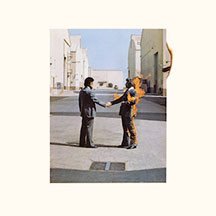
76. Wish You Were Here – Pink Floyd (1975)
Pink Floyd's melancholic remembrance of their original vocalist Syd Barrett, who left the band due to deteriorating mental health, is represented here as the lowest of their albums on my list— although by no means does that make it my least favorite Pink Floyd album of all (Atom Heart Mother, I'm looking at you). Truthfully, the only reason for its low ranking on the list is that there's not quite enough of it. Bookended by the two halves of the massive suite "Shine On You Crazy Diamond", the album only contains three shorter songs (all of which, of course, have become staples in Pink Floyd's repertoire). For me, the album's most distinguishing feature is its use of piercing synths in "Welcome to the Machine" and "Have a Cigar", which give it an unmistakable 70's prog sound.
Prime cuts: "Wish You Were Here", "Shine On You Crazy Diamond (Parts I-V)"
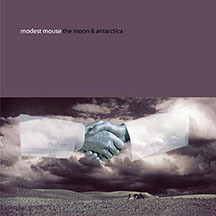
75. The Moon and Antarctica – Modest Mouse (2000)
Another album where nostalgia is the primary motivation for its inclusion. My exposure to this album didn't come until about seven years after its release, after moving to Canada. I have my friend Laurie to thank for it—she was a fan of Modest Mouse, so I heard quite a bit of their music when we were together. There is, I suppose, a hint of irony in this particular album, which deals heavily with the theme of isolation and alienation, being represented in my mind as a signifier of my own social renaissance. But then, it seemed to fit all too perfectly at the time— after all, even when you know people there, moving to a different country can be a very daunting and lonely prospect.
Prime cuts: "Tiny Cities Made of Ashes", "The Cold Part"
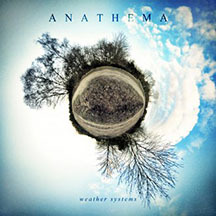
74. Weather Systems – Anathema (2012)
I realize a lot of Anathema's original fans bemoan the band's migration away from doom metal and into the realm of more consumer-friendly hard rock with a slight prog twist (a hallmark of their move to their current label, Kscope). I, however, adore their Kscope sound. There is a beautiful sentimentality about it, echoed in the vocals of Vincent Cavanagh and Lee Douglas. Their voices just mesh so naturally in duets, and on the occasions where Douglas is given solo parts to sing (such as "Lightning Song"), her voice is completely mesmerizing in its purity. As the name suggests, Weather Systems is a breezy, atmospheric album, chock full of meteorological metaphor. Sometimes the gale rages, and sometimes the sun comes out—but don't be fooled. At the core of it is a stable band which is confidently anchored to terra firma.
Prime cuts: "The Storm Before the Calm", "Lightning Song"

73. 90125 – Yes (1983)
It probably comes as no surprise, considering it is one of their most accessible albums, but 90125 was my introduction to seminal first-wave prog band Yes. By this point in their career, the excesses of sprawling 20-minute songs and theatrical live shows had fallen out of favor, and the band had all but collapsed as a result. 90125 was the result of a more commercially viable side project of Chris Squire and Alan White, called Cinema. After the return of singer Jon Anderson, the material was released under the banner of Yes, and like a phoenix, the band re-emerged from the ashes of its previous incarnation to find even greater vitality and appeal than before. "Owner of a Lonely Heart" quickly became a rock radio staple, which it remains to this day on classic rock stations. A must-have for admirers of 80s rock, and mandatory listening for fans of Yes.
Prime cuts: "Owner of a Lonely Heart", "It Can Happen"
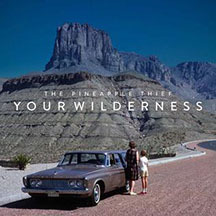
72. Your Wilderness – The Pineapple Thief (2016)
In my view, The Pineapple Thief is criminally underexposed. Another band on this list with progressive roots, their sound falls somewhere toward the center of a spectrum between 1990s Radiohead and 2000s Porcupine Tree—so of course it appeals perfectly to me. (Actually, the Porcupine Tree resemblance makes sense on this album, given that time is kept expertly here by none other than PT's drummer Gavin Harrison.) And frontman Bruce Soord has an obvious talent for crafting catchy and emotive pop/alt-rock, even while taking it in less obvious directions. Your Wilderness is a shining example of that pop craft in action. As an album, it's a bit more on the wistful, subdued side, with a heavy reliance on acoustic balladry (and at least one prominent appearance of smooth jazz clarinet), but it still definitely has its moments of hard rock brilliance, too.
Prime cuts: "In Exile", "That Shore"
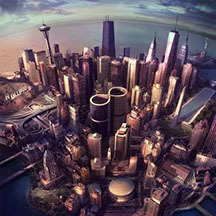
71. Sonic Highways – Foo Fighters (2014)
Moving into a new home in Washington state in the summer of 2014 came with a few perks—it was larger than my apartment in Vancouver had been, as well as quieter and cheaper. One of my favorite perks, however, was the addition of HBO to my television package. Subsequently, I became aware of Sonic Highways through the 8-part HBO documentary series directed by Dave Grohl. In short: to celebrate the band's 20th anniversary, Grohl took the band to eight U.S. cities, to conduct interviews for the documentary, discussing each city's historical contributions to American musical culture. Afterwards, he would write songs for the band to record based on those interviews, and even record with guest musicians (including Joe Walsh, Rick Nielsen, Ben Gibbard, Zac Brown, and the Preservation Hall Jazz Band). The premise intrigued me. As the band traveled from Chicago to Washington, D.C., Nashville, Austin, Los Angeles, New Orleans, Seattle, and finally New York, I watched with great interest, delighted that such a good band could be involved in such a unique celebration of creative spirit. Kudos to the Foo Fighters, for promoting the conservation of our musical heritage.
Prime cuts: "Something from Nothing", "Outside"
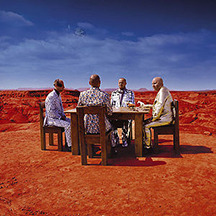
70. Black Holes and Revelations – Muse (2006)
Back before the dabbling with dubstep, back before the three-part space operas, back before the blatant Queen impersona—er… homages, there was Muse's political-prog gem, Black Holes and Revelations. Around 2006, with the Morricone-esque "Knights of Cydonia" finding heavy play on music video channels (at least, the ones that still played videos at that point), this album came into my life and perfectly summed up the zeitgeist of the Bush years for me. I was isolated, discontent with a political establishment that did not reflect my values, and desperately seeking solace from my feelings of alienation and helplessness. How many times did I actually ask myself the question at the core of "Map of the Problematique": "When will this loneliness be over?"? How many times did I actually repeat the affirmation at the end of "Soldier's Poem": "There's no justice in the world, and there never was"? Well, anyway, it was an immense help to me to at least know these were things on somebody else's mind, too. (And it's amusing to look back on the album in retrospect and remember a time when "Knights of Cydonia" was actually among the more outlandish and indulgent things they had done to that point. Those days are long gone now.)
Prime cuts: "Map of the Problematique", "Knights of Cydonia"
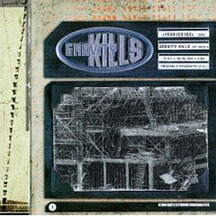
69. Gravity Kills – Gravity Kills (1996)
If you know St. Louis band Gravity Kills at all, it's probably from their song "Guilty", which appeared briefly in the David Fincher movie Se7en, as well as a promo for True Blood. Truly a product of its time, their debut album was released during the upswing of industrial, when Nine Inch Nails had propelled the genre to the foreground of public consciousness, and other industrial acts were beginning to capitalize on the new exposure. There is, perhaps, a twinge of 90s cheese here which might sound dated to a present-day listener—but to me, at least, it really doesn't matter. I like the 90s. I grew up in the 90s. I understand that decade, better than I even understand what's going on now. And anyway, Gravity Kills isn't a NIN album. It has a distinct sound—sometimes grungier, and sometimes more danceable, but never boring.
Prime cuts: "Guilty", "Blame"
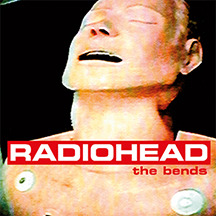
68. The Bends – Radiohead (1995)
AKA, the album which set such a high bar that it could only properly be followed directly by two successive decade-defining albums in a row, The Bends marks the beginning of Radiohead's streak of masterpieces. At the time, some had dismissed them as a one-hit wonder, known primarily for their break-out single "Creep". The Bends put any of those naysayers' theories to rest for good. Thanks in part to fantastic memorable music videos for "Just", "Fake Plastic Trees", and "Street Spirit (Fade Out)", the album heralded the rise of Britpop as a force with which to be reckoned in the alt-rock sphere. There's a reason why some of Radiohead's fans were alienated by their total change of pace during the release of Kid A—because the band's material circa The Bends is just so fucking good.
Prime cuts: "Just", "Street Spirit (Fade Out)"
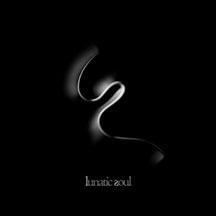
67. Lunatic Soul – Lunatic Soul (2008)
"Lunatic Soul" was the first I'd ever heard of Mariusz Duda. The song was included on a sampler disc of artists on the Kscope label, which I received as a free bonus along with my copy of Porcupine Tree's The Sky Moves Sideways (more about that album to come later on in the list). At the time, I was a senior at art school, finishing up a degree in Fine Arts. While working in the studio one day, I got curious and popped the disc into my Discman to see if I could paint to it. I was so struck by that song in particular, that I decided to buy the album, and did some more research into Riverside's back catalog of music as well. As mentioned earlier, Lunatic Soul is like the yin to Riverside's yang. The first album is a concept album revolving around the journey of a dead soul drifting through the afterlife. As such, the album is equal parts dark, eerie, ambient, and mournful, with touches of east Asian aesthetics blended in for good measure. Truly, though, the pinnacle of the album is the epic "The Final Truth", which sees the protagonist encountering the ethereal ferryman and being forced to make a fateful decision; the song begins as little more than a funeral dirge underpinned by a drum loop, before gradually reaching a tremendous dramatic climax.
Prime cuts: "Lunatic Soul", "The Final Truth"
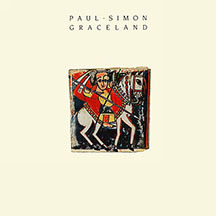
66. Graceland – Paul Simon (1986)
My appreciation of Graceland is largely inherited. Along with Queen, the Police, the Eagles, and Emerson Lake and Palmer, it was among the albums I grew up hearing a lot due to my parents' musical tastes. There really is something special about it. The entire album is an exercise in branching out into territory which was largely unexplored by popular musicians of the 1980s—New Orleans zydeco, Tex-Mex rock, and of course, the African isicathamiya represented here by the appearance of Ladysmith Black Mambazo. At the time of its release, of course, Graceland was a controversial album for flying in the face of the recording industry's boycott of South Africa because of apartheid. Growing up listening to it, though, I didn't have any of that context. All I knew was that it sounded different than anything I'd ever heard before. Over 30 years on, I can still say that about the album.
Prime cuts: "You Can Call Me Al", "Diamonds on the Soles of Her Shoes"
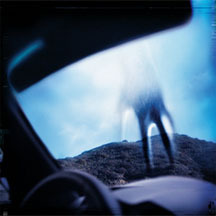
65. Year Zero – Nine Inch Nails (2007)
Year Zero is a transitional album for me. I bought it during my third and final year of college in Florida, before dropping out to continue my studies in Canada. I have memories of that album from both places. It is perhaps Trent Reznor's most overtly political statement—a concept album about a dystopian future America where conservative government has devolved into moralistic neo-fascism (a premise that gets more and more tangible every day now, sadly). In a way, I suppose it was a fitting soundtrack to my exodus from Bush's America. Too bad we still haven't learned our lessons from then.
Prime cuts: "Survivalism", "Me, I'm Not"
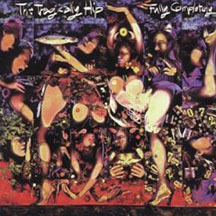
64. Fully Completely – The Tragically Hip (1992)
Like the previously mentioned Finger Eleven album Tip, this is another album which is inextricably linked with my experience of Canada. I lived there for six years, so it's inevitable that some Canadiana would have seeped into my soul by osmosis. Like Tim Hortons and reruns of Corner Gas and The Red Green Show, this is another piece of culture from north of the border that will always take me back to my mid-twenties.
Prime cuts: "Courage (For Hugh Maclennan)", "Looking for a Place to Happen"
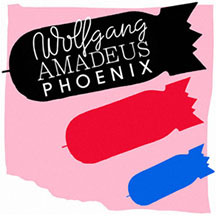
63. Wolfgang Amadeus Phoenix – Phoenix (2009)
The bombs on the cover art are quite appropriate—this was the album that dropped and blew up Phoenix into a mainstream act. Attracted by the single "1901" (which had found its way to being featured in an oft-repeated car commercial), I decided to give it a listen, and I loved what I heard. While not quite as hard-rocking as is my usual taste, it sounded fresh and vibrant and full of youthful vigor. A peppy mix of indie rock and synthpop, the album provided a breath of fresh air and organic listening fare that was on the easier side for me, without being sickeningly saccharine or processed.
Prime cuts: "1901", "Lisztomania"
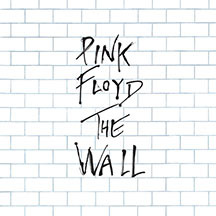
62. The Wall – Pink Floyd (1979)
The Wall, I find, is something of a mirror. That is where I find it contains most of its potency. My own circumstances may be quite different, but the psychological struggle of Pink is one that certainly strikes a nerve with me. I was introduced to this album in high school, where the one-two punch of "The Happiest Days of Our Lives" and "Another Brick in the Wall (Part 2)" often echoed my own discontented sentiments about being trapped in a demoralizing educational environment. Like Pink, my adult years have frequently led me to placing more bricks into my own wall to seal myself off from others. And indeed, I often find myself wondering, "Is there anybody out there?" Nearly 40 years after its release, The Wall still holds up, largely because it is such a relatable tale—on some level, at one point or another, I believe everyone can identify with the sheer, horrifying, abysmal loneliness faced by the album's protagonist.
Prime cuts: "Comfortably Numb", "Another Brick in the Wall (Part 2)"
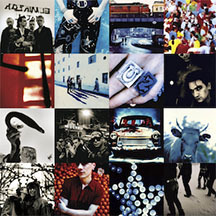
61. Achtung Baby – U2 (1991)
Okay, let me get this out of the way: I think The Joshua Tree is a great album. Don't get me wrong about that. I know exactly why it is as highly lauded as it is. It's got some timeless songs on it, and believe me, I have more than my fair share of memories attached to it, both good and bad. But, spoilers, everyone: Achtung Baby is the only U2 album that made this list, and the reason is very simple— it just appeals more closely to my sensibilities than The Joshua Tree. It is a much more electric record, certainly moodier in tone and heavier in subject matter. It's easier for me to relate to, especially when I feel lost (which is frequent). When you boil it all down, that's the big difference for me: While The Joshua Tree has certainly been present during some moments of revelation and heartache for me… the truth is, this album has actively played a part in getting me through some tough shit over the years, and challenged me to re-examine my life. It has earned its spot on my list.
Prime cuts: "The Fly", "Mysterious Ways"
Next time: Part 3 (#60 - 41)!
0 notes
Text
My Top 100 Favorite Albums of All Time (Part 1: 100 - 81)
Greetings, followers! Next Friday, December 8th, is my 32nd birthday. And because I'm honestly surprised I've survived this long (and because music is a big reason that I have), this year, I decided I wanted to do something special to mark the occasion. I've always enjoyed the sorts of lists that music publications put together, so I've made my own: My Top 100 Favorite Albums of All Time. This list will serve as a great indicator of which albums have influenced me the most over the course of my first 32 years on this planet. For the next week, I will be posting up a new section of the list every night at midnight PST, before culminating with my top 5 on my birthday.
Before we begin, a few notes about the list. This is going to be a little different from most lists in music publications, because it's completely based on my own tastes and preferences. By no means am I claiming these are the best albums, only that they are the ones that I like the most. This list is not solely about the music itself, but the experiences I've had which are connected to the music. For that reason, the list is frequently going to delve into my specific memories, and examine the albums from my perspective rather than an objective, "detached" angle. With each album, I've also listed a few "Prime Cuts"— the songs which stand out the most for me.
When considering this list, there were two major criteria each album on this list had to meet for it to be included:
· #1. I must have listened to the entire album, from start to finish, at least once, and be acquainted with every song. This is sort of an obvious rule, but I included it specifically to make a point, that a single great song isn't enough justification for a spot on this list. The entire album has to hold up.
· #2. Original studio albums only, no compilations. This was a really big rule. A huge chunk of my music library consists of "Best Of" compilations. For that reason, this list isn't entirely representative of the full breadth of my musical tastes. It's the reason, for example, that the Smashing Pumpkins, Alice in Chains, David Bowie, Björk, Dream Theater, and many, many other artists that I like didn't end up on the list. That said, all of the ones who did end up on here are very deserving of their places here, for holding my interest with their albums.
Now, with that out of the way, let's begin, with albums #100 - #81:
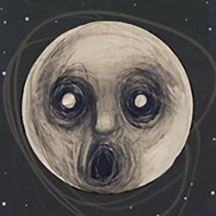
100. The Raven That Refused to Sing (And Other Stories) – Steven Wilson (2013)
Expect to see a lot of Steven Wilson's work on my list. Ever since my first encounter with Porcupine Tree in my early twenties, his music has had perhaps the most profound impact on me of any single musician's. For his third solo effort, Wilson created a unique concept album consisting of various ghost stories in song format, with a heavy dose of '70s prog sensibility. While not my favorite of his work, The Raven is still a remarkable showcase of technical proficiency and pathos (and its title track is one of the few times I've ever heard Auto-Tuning used in a truly creative manner).
Prime cuts: "Luminol", "The Raven That Refused to Sing"
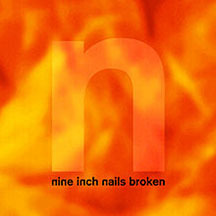
99. Broken – Nine Inch Nails (1992)
While the format of an EP may not provide as lengthy and immersive an experience as a full studio album, Trent Reznor certainly didn't pull any punches with this one. Broken is perhaps the most raw and hard-edged selection in NIN's impressive catalogue of halos, occasionally even making The Downward Spiral seem a bit tame by comparison. When I first began delving into industrial music as an angst-ridden teenager, there was nothing in my music collection quite as hard-hitting for me as Broken— its primal rage served as a powerful cathartic mirror or my own, and ever since then, it has served as a visceral reminder of how far I have come.
Prime cuts: "Wish", "Happiness in Slavery"
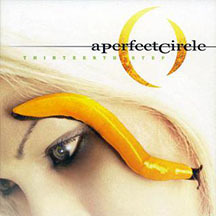
98. Thirteenth Step – A Perfect Circle (2003)
Another name you'll be seeing frequently on this list is Maynard James Keenan, the vocal talent behind Puscifer, A Perfect Circle, and of course, Tool. Here, Maynard and APC's other primary member Billy Howerdel were joined by some pretty stellar talent from other bands, including James Iha from the Smashing Pumpkins and Jeordie White (formerly Twiggy Ramirez from Marilyn Manson). I think Thirteenth Step is probably objectively the best of A Perfect Circle's albums, even if it isn't the one I call my personal favorite. With a name that references twelve-step sobriety programs, this is another concept album, with each of its songs serving as a different perspective on the difficult prospect of recovery from drug addiction.
Prime cuts: "The Outsider", "Pet"
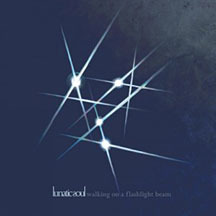
97. Walking on a Flashlight Beam – Lunatic Soul (2014)
If you haven't heard of Polish prog rocker Mariusz Duda, I encourage you to check out his two most prominent bands, Riverside and Lunatic Soul. While Riverside is a more straightforward progressive metal act, Lunatic Soul has primarily served as Duda's personal project for channeling the more emotive aspects of his artistry. Which isn't to say it can't occasionally be heavy or dark too, as this album demonstrates—Lunatic Soul's conceptual basis has to do with the afterlife, and nearly every track here has some sort of eerily menacing undertone, even while veiled beneath layers of hypnotic beauty (as in the best track on the album, the bass-heavy Middle Eastern-flavored "Gutter").
Prime cuts: "Gutter", "Pygmalion's Ladder"
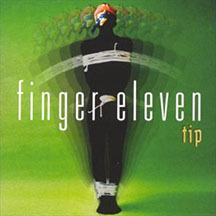
96. Tip – Finger Eleven (1997)
This is one of many picks which is probably here primarily due to nostalgia. I bought this album in 2005, while visiting a friend in Toronto—my first time extensively traveling alone, and my first prolonged experience with Canada. I specifically picked it because I wanted to sample something local. To this day, I can't help thinking about that trip whenever I listen to it. Over the years, Finger Eleven has received a bit of a reputation for their association with the nu metal genre, but on this album—their formal debut—there really is no trace of it. Instead, Tip is a collection of solid, straightforward late 90's alt-rock. Not a bad introduction to Canada, eh?
Prime cuts: "Above", "Glimpse"

95. Dear Science – TV on the Radio (2008)
Although music journalists often cite their 2006 album Return to Cookie Mountain as the pinnacle of their achievements, I truly believe TV on the Radio's best, most cohesive work is on this album. Perhaps I'm biased, because this was also the album that introduced me to them. Their eclectic blend of indie rock, funk, and jazz was much appreciated during a period when I was looking to branch out and expand my musical tastes.
Prime cuts: "Dancing Choose", "Golden Age"
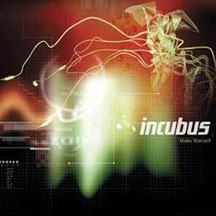
94. Make Yourself – Incubus (1999)
Make Yourself was the first real mainstream success for Incubus, and for good reason. The album is a good mix of alt-rock crunch and nu metal style—essentially, the best of both worlds, in terms of rock radio in 1999. I first became interested in Incubus years later, in my early twenties, while attending college in Florida, and for me, this music is now inextricably linked with that experience. With lyrics about self-realization and reassurances like "not everyone here is that fucked up and cold", Make Yourself is probably one of the sunniest albums in my collection—but it is also a great demonstration that positivity doesn't have to mean sacrificing hardness.
Prime cuts: "Pardon Me", "The Warmth"
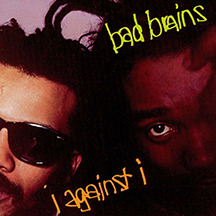
93. I Against I – Bad Brains (1986)
Truthfully, I'm not really a huge fan of punk rock. I listen to some bands within the genre to add a little variety to my playlist, but it's never really been my scene, largely because the music is often built on an ethos of sacrificing melodic appeal for a faster tempo and an abrasive attitude. I Against I is one major exception, from a band that was rather unconventional even among their fellow punk peers at the time. Taking cues from heavy metal, funk and reggae as much as hardcore punk, Bad Brains' most successful album surprised me with its musicality on my first listen, and had me coming back for subsequent listens.
Prime cuts: "I Against I", "Secret 77"
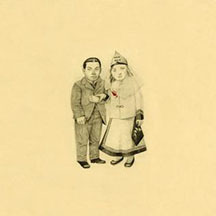
92. The Crane Wife – The Decemberists (2006)
One of the Decemberists' most cohesive and accessible albums, The Crane Wife demonstrates the band's taste for esoteric lyrical matter, with songs about subjects ranging from Japanese fables and Shakespearean stories, to the real-life story of a besieged seed vault in WWII Leningrad. Simultaneously, the album also showcases the Portland indie band's musical versatility, as they dabble in hard rock, disco-funk and progressive.
Prime cuts: "O Valencia!", "The Perfect Crime #2"
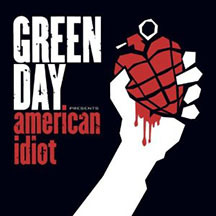
91. American Idiot – Green Day (2004)
2004 was sort of a watershed year for me in terms of my development toward adulthood. That was the year I graduated from high school in Georgia, and my family moved to Florida, where (as stated earlier) I began my college life. It was the first time I had enough independence from my family to really develop a sense of confidence in my own political leanings. It was also smack dab in the middle of George W. Bush's administration, and the first year where I was able to vote in a presidential election. In the midst of all the discontent over the Iraq War and the rise of terrorism, Green Day released an album which not only revitalized their careers and reinvented them as politically relevant in the 21st Century, but also succinctly encapsulated my own feelings of alienation toward an incompetent and repressive conservative government and an American public that seemed to have chosen faith and fear over reason and intellect.
Prime cuts: "Holiday", "Boulevard of Broken Dreams"
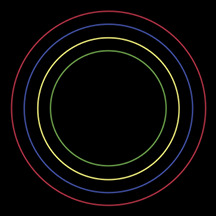
90. Four – Bloc Party (2012)
Although it has sometimes been argued that Bloc Party has always been a band of diminishing returns (and I admit, there may be some validity to that argument), it hasn't stopped me from having a soft spot in my heart for them (which I will explain later). The band's appropriately-named fourth album Four is the lowest one on my list, but I wouldn't say it's a bad album (a claim which I sadly can't make about its successive album, Hymns, which didn't even make my list). In truth, this album was actually a bit of a return to form for them, with some of their hardest and edgiest material since Silent Alarm. Conversely, I think it also contains some of their most successful material with a mellower vibe as well. Overall, a decent album, and one which I really hope will not go down as the band's last gasp of vitality.
Prime cuts: "Kettling", "Day Four"
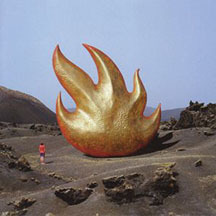
89. Audioslave – Audioslave (2003)
Combustion and fire imagery runs rampant on Audioslave's self-titled debut. As motifs go, it was an apt metaphor for the incendiary mixture of one part Soundgarden with three parts Rage Against the Machine. Both were defunct bands I had been hoping to hear from again, so when Audioslave formed from the ashes, I was really fired up myself. So fired up, in fact, that I got tickets to Lollapalooza '03 when it came to Atlanta, mostly to see them (and, admittedly, the other headliner, Jane's Addiction). Despite being horribly sunburned and then drenched by rain, I walked away with one of my most unforgettable concert experiences ever (as well as a poster autographed by Tom Morello!).
Prime cuts: "Gasoline", "Like a Stone"
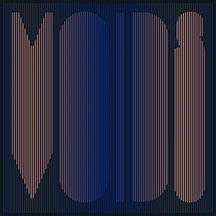
88. Voids – Minus the Bear (2017)
The most recent entry on this list, Voids was my first encounter with Minus the Bear, a Seattle band which has (to my surprise) been around for over a decade now, redefining the term "progressive rock". At first listen, Voids seems more or less like straightforward indie alt-rock, albeit polished to a nostalgic Reagan-era sheen. Each song feels like it could easily be a commercially viable single. However, it is in the soundscapes intermittently scattered throughout the songs—brief reprieves where the catchy hook delves into a loop where time signature seems to be upended by some arcane logic—where the music is finally revealed to take on a progressive edge. Combined with Jake Snider's distinctive vocals, the songs on Voids offer a tasty blend of everything good about rock to emerge in the past four decades: 80s synthpop, 90s alternative, 2000s indie rock, and 2010s style.
Prime cuts: "Invisible", "Silver"
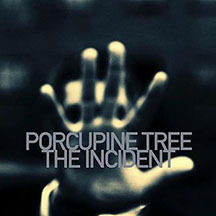
87. The Incident – Porcupine Tree (2009)
According to Steven Wilson, there's a good possibility this really is Porcupine Tree's swan song. So, what to say about (presumably) the final album of one of my favorite bands? Admittedly, I don't think it quite measures up to most of their earlier work—but if this really is their goodbye, it's still a hell of a way to go out. The Incident is a two-disc set, with the entire first disc taken up by the first "song" (which has been broken up into named movements and portioned into tracks for easier listening). Apparently inspired by an encounter with a highway traffic jam as a result of a gruesome accident, the song is a meditation on 21st Century detachment and antisocial behaviors in a media-saturated world, with the nostalgic Pink Floydian epic "Time Flies" serving as a centerpiece. While the second disc may seem like an afterthought after listening to the first, particularly with its much shorter running time, it does include some gems as well. Overall, despite not quite being up to par for Porcupine Tree, it still allows the band to bow out with an enormous amount of dignity and an intact legacy as one of the finest progressive bands of the past thirty years.
Prime cuts: "The Blind House", "Bonnie the Cat"
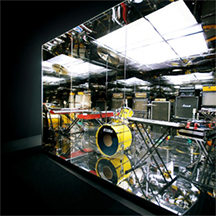
86. Mirrored – Battles (2007)
I'll say it: Mirrored is a badass album. Probably not the first adjective that comes to mind for many after hearing Tyondai Braxton's liberal usage of incomprehensible, distorted, chipmunk-on-helium vocals, but I think it fits. Experimenting and innovating is badass. Having a sense of humor is badass. Dave Konopka and Ian Williams's guitar work is badass. And in my view, the most badass thing about this album, the thing that really anchors it down and makes it function properly, is Helmet drummer John Stanier's prodigious rhythm-keeping, reliable as clockwork even through odd time signature changes and gradual tempo shifts. Not since discovering Rush has there been an album where I felt the drummer was as integral to everything working.
Prime cuts: "Atlas", "Rainbow"
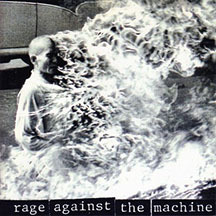
85. Rage Against the Machine – Rage Against the Machine (1992)
In more ways than one, this is an album that presents itself as being revolutionary. The self-titled debut from Rage Against the Machine introduced the world to a mixture of rock, rap, and politics that had never been seen before. I discovered this album in high school—of course, by then, about a decade had already passed since it had been released. Initially, the big points of my attraction to this album were Maynard James Keenan's guest appearance in the song "Know Your Enemy", and the prominent appearance of "Wake Up" at the end of The Matrix, but I quickly learned to appreciate the rest of the album from start to finish. Though the album is perhaps not as polished as their subsequent work, in a way, for a band like Rage Against the Machine… that raw sense of unbridled vitriol sort of works in their favor.
Prime cuts: "Killing in the Name", "Wake Up"
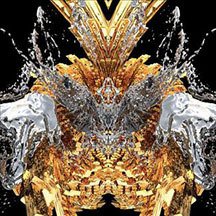
84. Himalayan – Band of Skulls (2014)
Good new hard rock has been getting harder to come by lately. I discovered Band of Skulls after hearing the track which they contributed to the HBO series The Jinx: The Life and Deaths of Robert Durst. After listening to a handful of songs off of Himalayan (which was their latest album at the time), I was sufficiently impressed to snare myself a copy. Though the bulk of the album is comprised of '70s garage-style rockers, the band isn't afraid to show a little variety— slowing things down a bit with the dramatic flair of the Tarantino-esque "Cold Sweat", and conjuring up a psychobilly surf-rock vibe with "I Feel Like Ten Men, Nine Dead and One Dying". In my view, the album's title actually seems rather appropriate—its musical journey feels very much like traveling up to the top of a craggy, larger-than-life mountain peak and then down again.
Prime cuts: "Hoochie Coochie", "Nightmares"
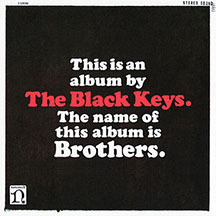
83. Brothers – The Black Keys (2010)
Around 2010, I was in a real dry spell concerning music. My reliable choices for listening had all but vanished: Porcupine Tree went their separate ways for Steven Wilson to work on solo projects, Bloc Party and Nine Inch Nails were on hold, there was no news from Radiohead, Modest Mouse or Tool, and Octahedron wasn't quite holding my attention the way that previous albums from the Mars Volta had. A new decade had begun, and I desperately needed something fresh to listen to. Into this void, Brothers was released, and I was introduced to the Black Keys. Admittedly, it wasn't quite what I had been expecting to quench my drought— the album's vintage blues rock sound was undeniably a throwback— but it was just such a fun and well-orchestrated album that my initial impression of it being a lost recording unearthed from a time capsule after fifty years was quickly deemed irrelevant. Old was new again.
Prime cuts: "Tighten Up", "Howlin' for You"
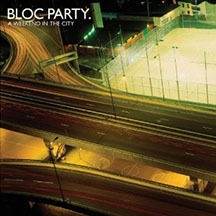
82. A Weekend in the City – Bloc Party (2007)
Some albums, regardless of quality, are etched into your memory by proximal experiences—i.e., the things that happen in your life around the same time. A Weekend in the City was one of those albums for me. With its major thematic underpinning being the alienation of life in an urban environment, it's hard for me to say it wasn't an absolutely perfect album to coincide with my move from the suburban sprawl of Florida to the city life of Vancouver. This album essentially became the soundtrack to my culture shock. It is perhaps a more oblique album than its immediate predecessor—a merely good follow-up to a great opening act— but with songs inspired by Bret Easton Ellis novels, racial tension, and terrorism paranoia, it ended up being an essential initiation for me into a larger world than I'd ever experienced before.
Prime cuts: "Hunting for Witches", "Where Is Home?"
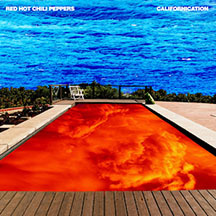
81. Californication – Red Hot Chili Peppers (1999)
Until the age of 14, admittedly, I was rather clueless about contemporary music. My childhood was dominated by oldies radio, to which my parents listened. I didn't start to gain a feel for my own independent tastes until I began to watch VH-1 circa 2000, and developed an interest in music videos. Red Hot Chili Peppers had recently released this album, and videos from it were still in heavy rotation. The videos for "Otherside" and "Californication" absolutely fascinated me—they were both so creative in concept that they served as a catalyst in my continued discovery of new music. The album ended up in heavy rotation throughout my teen years, whenever I was in the mood for something a bit more upbeat. Even as my tastes have matured with age, this one sticks with me, and stands the test of time.
Prime cuts: "Otherside", "Californication"
Well, that’s it for now, but stay tuned for Part 2 tomorrow, where I’ll reveal albums #80-61!
0 notes
Text
‘Cause I Fell on Black Days.
I want to discuss a very serious subject matter today, one that I feel is still very poorly understood in the public discourse, at least in the United States. This is a subject matter that is very intensely personal for me. Admittedly, I am nervous as I type these words. I wonder how you, the reader, will react. Will you judge me unfairly? Will you be sympathetic? If you've never been where I have, or felt what I've felt, part of me wonders if it's even possible for you to grasp what it's really like. But then, I realize, I have to try. Even if it's ultimately a futile pursuit, it's my responsibility, as an artist, to try to make you understand.
Today, I want to talk about depression.
I feel the dialogue on this subject has slowly been improving over the past few decades. There was a time, I know, when the subject of mental illness really wasn't discussed at all, and I'm glad that we can at least now conceptualize an in-depth conversation about it. But it's still not enough. I know depression can be difficult to talk about in concrete terms, partly because it's a very emotionally charged and unpleasant topic, but also partly because, to so many people, it still seems invisible, in a way that other disorders or maladies are not. But I am here to argue that it is not nearly as inconspicuous as it seems, and that it needs to be taken seriously.
On Wednesday, of course, the world lost a true legend of music when Chris Cornell, the lead singer for Soundgarden and Audioslave, died in his hotel room after a show in Detroit. He was 52 years old. The news hit me like an atomic blast. I was absolutely devastated. For me, it was every bit as much of a loss as Freddie Mercury or David Bowie. I mean, Soundgarden was a big part of my adolescence. I got my copy of Superunknown around the time I was 15 or 16, and to this day, it remains one of my all-time favorite albums. I was lucky enough to see Cornell in concert at Lollapalooza '03 in Atlanta, when Audioslave was one of that year's two big headliners (the other being Jane's Addiction). I got badly sunburned, and then, by the end of the concert, completely soaked by a sudden storm that had appeared while Jane's Addiction was setting up. But even despite all of that, it was one of the greatest concerts I've ever attended, and a large part of that is due to me getting to see Cornell performing live. His voice was unearthly, in a way that can never, ever be replaced.
So imagine how I felt when I learned that his death had been ruled a suicide. It was like Robin Williams, all over again.
And I know, it's not really a unique perspective, by any means-- but I do feel like my personal proximity to this phenomenon obliges me to speak. Since Cornell's death, I have heard the question posed-- the same question that crops up whenever something like this happens: "Why?" Why would he kill himself? He was famous, he was successful, he had a family and friends and bandmates and legions of adoring fans, among which I count myself. By all metrics, or at least by all of the ones we value in the West, he should have had a strong will to live. And then, of course, there's the inevitable accusations of selfishness, because how could he abandon everybody who cared about him, and throw everything away like that?
But it's not that simple. Believe me, I know what I'm talking about.
For anyone who might not be aware, I have myself suffered from depression for much of my life. It first surfaced in a clinical capacity when I was 18, around the time I began my first year of college. Even though it took that long to manifest as this thing we call 'depression', I contend that its roots extend all the way back to my childhood. I didn't have a happy childhood. My parents were always quite supportive of me, but where I grew up, there really weren't too many others who were. I spent my childhood in an extremely socially conservative region (northern Georgia, in smalltown suburbs a few hours from Atlanta). I was smart in an area where athleticism was the most important thing. I was agnostic in an area where everybody was strongly Christian. I was a northern transplant in an area where people still felt raw about losing the Civil War. So, I didn't have many friends.
To my dismay, that didn't change very much when I went to college in Florida. I thought that going to an art school would result in me having more in common with others, and being able to form better social circles. Instead, I still felt like an outsider. That first year, living with two roommates who both came from the same place and already knew each other, I very frequently felt like a third wheel, and ended up confined to my bedroom most of the time while my roommates had friends over, just because I really didn't feel like they wanted me around. It was in that climate-- having had an actively hostile childhood, and not receiving the relief and social support I so desperately needed at college-- that my depression was properly formed.
The type that I experience is called dysthymia, or neurotic depression. It's a bit milder than standard clinical depression, but lingers much longer, too. In my case, it's a life sentence. I've come to terms with that. I know how it goes-- I'll be fine for a few months, and then BAM! Something will trigger me, and I'll sink into it for a few hours or days, before rebounding. A trigger doesn't have to be a big thing; it could be something as small as somebody saying the wrong thing to me, or something insignificant not working out the way I had hoped. I don't take antidepressants, because I have decided that I am not comfortable with altering my brain chemistry and potentially experiencing unwanted side effects. The reason I mention all of this is because one reason depression is such an elusive subject is that it is a different experience for everyone who has it. I can only really speak from my own experience.
When it first occurred, it came in waves of intense despair which lasted hours, days, even weeks. All my energy, all my vitality, was drained. All the joy, all the color, was sucked out of life. I became trapped in a seemingly endless spiral downward, to a place in my head where daylight and reason could not permeate-- to a lonely place where I became convinced that there must be something wrong with me, because nobody seemed to appreciate my company. Maybe... maybe this was a sign, that I didn't deserve to exist.
I hesitate to talk about this here, because I fear that others could interpret this incorrectly, and think I desperately need help. But I ask you to bear with me, and understand that I have grown much more accustomed to my depression, and I have a much better feeling for when I legitimately need help and when it would actually be detrimental to me. I don't want authorities called on me, or anybody to worry needlessly over what I have to say next. That said, here goes:
I have had thoughts about suicide myself, many, many times, and if I'm going to be honest, I probably will again, eventually.
It's difficult to explain to people what goes on in my head. I don’t make such an admission as a cry for help, because I can honestly say my own depression is lessening as I age. I don’t experience bouts as severely or frequently as I used to, and they are much more manageable for me now. I have grown and matured, and stabilized much more than when I was 18 or 20, or even 25. I don't truly consider myself in mortal danger anymore, because when I experience an onset of depression, it's now like a rote routine that I know how to navigate. For me, there is a line between thought and action that I will not cross. The thought crosses my mind, but I can hold myself in check. First of all, I'm squeamish about the thought of actually going through with it, even in my deepest lows. Secondly, I have loved ones who do care, and I have weathered my depression long enough that I have gradually gained the ability to force myself to consider them. Thinking of suicide is nothing but a kneejerk reaction for me now, a temporary coping mechanism when I don't have the mental resources to cope in any other way.
Doesn't mean it's pleasant, of course. Depression isn't just a mood-- it's a period of vulnerability. It's a delusion of futility. It's a catastrophic cascading system failure in the person's operating system. It's a cycle of negative emotion running roughshod over everything else-- logic, reason, and in many cases, positive emotional attachments to others. All those things Cornell had going for him-- fame, success, loved ones, a promising future-- they become reduced to background whispers, while the darkness is shouting through a megaphone. I always bristle when I see someone who hasn't experienced suicidal ideation firsthand claiming that it's selfish, because that's not really the right word for it. You don't know what it's like. Ego has nothing to do with it (save for, perhaps, not being present enough). In general, it's more like being involuntarily intoxicated-- your perception becomes skewed and impaired, to the point where you have difficulty making accurate judgments. For me, it's a subconscious monologue, making me feel worthless, like I'll always be alone and unloved, even though I know it's completely untrue. Some people experience anhedonia-- a clinical inability to feel happy. Some experience an unshakable all-encompassing grey fog of numbness. I have experienced both of those in the past, too.
But the key, I think, is that depression eats hope. I would even go as far as to call depression a "hope disease", in the same sense that cirrhosis is a liver disease or nephritis is a kidney disease. When you are depressed, hope disappears; you feel like the future is written in stone, and it's going to be bad. Or you feel like there's no hope that your present condition will change, so why bother anymore? That's the reason depression is so dangerous. Hope is important for people to survive; it's a fundamental component of the will to live. But when hope is broken, that will becomes compromised. It isn't that it's impossible to hold onto it-- but it becomes much more of a heavy burden to do so.
And much the same as you wouldn't tell someone with cirrhosis or nephritis to just "get over it", you can't tell somebody with depression to "shake it off" either. It doesn't work like that. Remember, this isn't a mood, it's a system failure. If I had any control over when and how intensely I feel depression, do you really think I would consciously choose to feel so bad that the only thing I can do is crawl into bed in a fetal position and sleep until it's over?
Again, I can't speak for everyone who experiences depression or suicidal thoughts. In some cases, I do think medication is a vitally important component for treatment. Suicide hotlines do important work, as well. Personally, I have found that counseling is the most effective thing for me. But if we're going to tackle this issue, the thing that I feel is of paramount importance first is that we do so from a position which is both educated and compassionate. Our media tends to be sensationalist about... well, everything, really, but mental illness has been particularly caricatured-- as being less of a problem than it is, or being the motivation behind tragic criminal actions such as shootings, or being a sign of serious character flaws like moral bankruptcy. We have to stop putting the stigma of depression on the person experiencing it. Who I am when I am depressed is a separate entity from who I am normally. It's like somebody else is in the cockpit, somebody that I only vaguely recognize. Take it from someone who knows, because he's felt it-- when depression is trivialized, or stigmatized, or treated as an inconvenience, or misinterpreted as just someone being self-absorbed, not only are we completely ignoring the building on fire, we're actually dumping gasoline on it. Be observant. Reach out to others who seem isolated or sullen, but respect their wishes if they want to be alone. If you've got loved ones who experience depression, take an interest in it, and ask them about it sometime when they aren't mired in it. Give them a nonjudgmental space to speak freely about it. If you suspect somebody you care about is in the grips of depression, the best thing you can do is to ask what he or she needs. If the person needs support, try to be supportive, or help find someone who can be. If the person needs space, give them space. And in any case, please, I urge you, BE PATIENT. Keep in mind, no one chooses depression-- it chooses us.
0 notes
Text
My Two Cents: Whitewashing and Politically Correct Casting in Film
I’m poking the hornets’ nest again.
Recently, it was announced that the Twelfth Doctor, Peter Capaldi, would be leaving Doctor Who at the end of the 2017 season. Now, I’m a pretty big fan of Doctor Who, so of course, this was a big deal for me. I’m going to be sad to see him go. At first, I’ll admit, I was skeptical-- I absolutely adored David Tennant and Matt Smith in the role, and Capaldi’s version of the Doctor was very different. But in time, despite being older and initially quite a bit more abrasive, the last season truly made me a believer (particularly his performances in “The Zygon Inversion” and “Heaven Sent”).
But I digress.
Of course, with the news of Capaldi’s departure, there’s been the inevitable wave of conjecture-- who will play the Thirteenth Doctor? And of course, part of this conjecture has been the now-commonplace suggestion that the role in question need not go to another white male actor. This is something that has been seen with increasing frequency in recent years, and which has been directed at everything from Star Wars to Marvel to James Bond. As a fan of these franchises, I’m invested in this discussion. So, against my better judgment, I find myself compelled to broach the subject of how to approach race and gender in casting.
Before I begin-- I realize that identity politics can be a very thorny and divisive subject, even in the context of the film industry. I’d like to note, as a white male film fan, the opinions I express here are only my own, and should be taken with a grain of salt. I mean absolutely no disrespect to anybody else, and I appreciate other perspectives on the issue, including ones that diverge from my own, so long as they are respectful as well.
So what is whitewashing? Basically, it’s the practice of productions casting white actors for non-white roles. It’s a very old practice that Hollywood has undertaken ever since its inception. This 2016 segment from Last Week Tonight with John Oliver sums it up quite nicely (warning: NSFW language):
https://www.youtube.com/watch?v=XebG4TO_xss
(Just as an aside-- while the John Oliver segment succinctly sums up the issue pretty well, I don’t agree with the entirety of it. For example, Tom Cruise’s role in The Last Samurai was a fictional character, but one which was based largely on a real historical figure named Jules Brunet. Admittedly, the film did take some liberties with the character, portraying him as American, where Brunet was actually French. Also, while it is largely open to audience interpretation, my impression of the film was that the “Last Samurai” referenced by the title was actually Ken Watanabe’s character, and not Tom Cruise’s.)
As shown here, there’s been quite a lot of backlash against whitewashing in recent years, with demands of more political correctness in casting becoming much more frequent. On the whole, honestly, I have to say I find fault with both sides of this dichotomy. Yes, whitewashing a movie like Gods of Egypt is absolutely ridiculous. I acknowledge that. And I also acknowledge that Hollywood has a long history of white actors being given preferential treatment. On the other hand, blind political correctness of any kind irks me as well, because it feels like an incomplete, disingenuous, kneejerk reaction to a complex problem. It doesn’t actually fix anything, it just breeds resentment. I suppose, for me, the governing principle is actually as simple as plausibility and faithfulness to the source material. Let’s take this on a case-by-case basis, using some of the properties that are most important to me, and I’ll explain my stance on each.
Let’s start in the realm of sci-fi. As a general rule, I would say that diversity is a boon in sci-fi, because one of the inherent appeals of the genre in the first place is the removal of real-world racial barriers. There have been so many fantastic non-white characters in my favorite sci-fi canons: Sulu, Uhura, Worf, La Forge, Tuvok, Chakotay and Torres in the Star Trek universe, Lando Calrissian and Mace Windu in Star Wars, Morpheus in The Matrix. Likewise, for women, there’s Princess Leia, Ellen Ripley, Sarah Connor, and Trinity. All of these characters have had a profound impact on me, and serve as a way for sci-fi to do what it does better than any other genre: reflect on the human experience, which in no small part includes our diversity. So long as there’s no conflict with the continuity, I’m satisfied. So from my position, the uproar over Finn from The Force Awakens made no sense. In the context of the continuity, there was nothing that really seemed problematic to me about the character being non-white, and I’d love to see more good roles created for females and non-white actors in sci-fi. This is an instance where I oppose whitewashing and unequal treatment of women.
Fine, I hear you say. The characters you’ve mentioned here were all clean slates when they first appeared in their respective franchises. What about non-white or female characters who are already established, as with live-action adaptations of books or animated series? Here, again, I reassert my stance against whitewashing. The best example I can cite here is the upcoming Ghost in the Shell movie. I’ve been a big fan of GitS since the first season of Stand Alone Complex aired on [adult swim] over a decade ago, during my early college days. I desperately want this to be a good movie. And in fairness, until the movie comes out, I’m trying to withhold too much judgment, but... I have to admit, I’m not thrilled by the casting of Scarlett Johanssen as Motoko Kusanagi. I don’t like the concept of discarding an established character’s core identity for the sake of being more sympathetic to a certain demographic of viewers.
Conversely, though, this is the same problem I have with the other side of the coin: political correctness in casting for its own sake. To demonstrate, let’s talk now about a character who was originally created as a white male: James Bond. I’ve been a fan of the James Bond movies since I was a kid, so this is a franchise which is uncommonly close to my heart. I have every single Bond movie in my collection, and I’ve seen them all multiple times. Growing up, I respected Sean Connery’s classics, and the grace brought to the role by Roger Moore, but of course, my favorite was the current one at the time, Pierce Brosnan. For me, there was nobody else who could make the role his own like Brosnan did. And then Daniel Craig was cast. As I was with Capaldi’s Doctor, I was a bit skeptical of Craig’s Bond at first. It wasn’t because he was the so-called “Blond Bond”, as he was called by so many others. It was because he was so serious, so dry, so gritty. Whatever wry sense of humor Brosnan brought to the role, Craig seemed to remove. In retrospect, it was probably for the better, considering that Ian Fleming’s original books depict Bond as a lot less “fun” than the movies made him out to be through the years, and I recognize that Daniel Craig is a talented actor. In Skyfall, I was heartened to see him even starting to lighten up with the role ever so slightly. With recent rumors of Craig’s retirement from the 007 mantle, though, much has been made of creating a female “Jane Bond” role for an actress, or, as mentioned in the clip above, casting Idris Elba. Now, as I just mentioned, I realize the movies have not always been faithful to the plot elements in Fleming’s books, and for the most part... yeah, it’s not that consequential to me. However, I do feel that changing the role of James Bond himself purely for the sake of political correctness is a bridge too far. I don’t say this to cast aspersions on Idris Elba, who is a truly phenomenal actor. But it is a complete, wholesale abandonment of Fleming’s original intent with the character. As an artist and an occasional writer myself, that doesn’t sit right with me. Yes, the Cold War is over, and popular attitudes about Bond’s womanizing ways have changed-- but to alter the core identity of James Bond would, I feel, fundamentally shatter the franchise. For those of us who have invested decades in the franchise’s evolution, and in the character’s development, it’s essentially saying, “All that time and emotion you put into following this is now completely nullified, and you don’t matter.” And truthfully, what logical sense does it make, to alter a pre-existing character’s identity, when someone could just as soon come up with a completely original non-white or female spy character? You want a franchise? Go for it. Own it. Create a new character to rival James Bond and Jason Bourne at the box office. I’ll be standing in line at the theater for a ticket just like you. I’d welcome diversity in this genre too. I just don’t see the sense in throwing 50+ years of continuity out the window and antagonizing longtime fans of 007 to accomplish it.
So what about the Doctor, who, like James Bond, also has 50+ years of precedent to consider? Well... the Doctor is a Time Lord, from Gallifrey. Things are a bit different for Time Lords, as there actually is established precedent for drastic canonical identity changes during regeneration, including race and gender. During Capaldi’s tenure as Doctor, his longtime Time Lord arch-rival, the Master, resurfaced with a new female identity, Missy-- and it was a great plot twist. In the past week, once again, I’ve seen Idris Elba suggested for the new role. In this case, I say-- yeah, great, if he wanted the role, I’d totally support that, because it doesn’t contradict the character’s canon. There are only really two things I’d prefer to see in a new Doctor: 1) that it remains a British role, and 2) that it goes to someone who will be able to believably embody the Doctor. That’s it, no skin color or gender requirements.
In conclusion-- my biggest problem with the usual arguments about this issue (and to some extent, about identity politics in general) is that the discussion really isn’t so simple as to merit a black-or-white response. No single answer is correct for every instance. Whitewashing is a perpetuation of an exclusionary status quo, but baseless political correctness can damage a franchise’s credibility as well. When it comes to casting, my suggestion is to practice moderation, make decisions based on what is best for the craft of storytelling on an individual basis, and look to the source for a guide.
13 notes
·
View notes
Text
Why I Don’t Love America
Before you bust out the torches and pitchforks, please let me explain:
There was a time, long ago, when I used to be proud to be American. When I was a child-- perhaps I was conditioned to feel this way. When one is a child, and learning about the world around oneself, it is easy to take every attitude which is disseminated by your elders as an immutable truth set in stone. And in the 1990s, when I was growing up-- before 9/11, and the War on Terror-- the unshakable greatness of America was one such truth. My childhood wasn't a particularly happy one, due to constant bullying-- but at least on this point, I had it good: I felt lucky, genuinely fortunate, that by accident of birth, I had been born into an American life. The United States was a strong, prosperous nation with a high standard of living, one which had recently emerged victorious from the Cold War, and which valued the principles of freedom and democracy. My parents, while not fabulously wealthy, were able to provide for me a very comfortable middle class upbringing, where money never seemed to be an issue. In the two-dimensional circle of awareness which I possessed in my youth, I knew for sure that I must have it better than a child born into poverty in Africa, or India, or Central America-- some of them weren't even guaranteed clean drinking water, but all I had to do was turn on the tap.
Nationalistic pride was something which I began to outgrow, along with the rest of my childhood innocence, when I hit my adolescence. It wasn't my history classes which shook it-- to the credit of my teachers, I did learn about so many of the things America had gotten wrong over the course of over two centuries: the way we had treated the Native Americans, and women, and particularly our original sin of slavery. I grew up in the South, so I learned about that last one in a different context than if I had lived in someplace like New Jersey; I learned the glossed-over version of the Civil War, where states' rights, and not slavery, was the primary reason for the war. But still, as young as I was, I figured that, yes, America had made mistakes, but it had learned and grown from them, and in the present it was essentially a good place full of good people.
Then 9/11 happened, and that was when my concept of America began to shift away from blind pride. I remember the days in the immediate aftermath of the attacks, when people pulled together. There was such a feeling of unity and common purpose, and a resolve to be stronger. But very quickly, that parity was squandered, by an administration who used it to justify the unjustifiable. As I entered college in Florida, I grew to loathe the Bush administration, and each of its innumerable follies and misdeeds-- the botched war, the WMDs that weren't there, the failure to find Osama bin Laden, the questions over Bush's legitimacy as president, the Patriot Act, Plamegate, Scooter Libby, Harriet Miers, No Child Left Behind, Hurricane Katrina, the negative environmental impact, the financial crisis, each and every gaffe that came out of his mouth. It got so bad that, at the peak of his second term, I jumped ship and moved to Canada. I had friends there who meant the world to me, I could finish my college education for less money, and I was thoroughly tired of the Fox News crowd telling me and like-minded Americans to "love it, or get the hell out".
Apparently I wasn't the only one with a bad taste in my mouth after 8 years of Bush, because the 2008 election was a resounding rejection of everything he'd ever stood for. It's easy to forget now, after the majority of Obama's presidency, what a monumental recalibration of our politics his election represented. He was the "hope and change" candidate, and no matter what your opinions on his policies may be eight years later, the symbolism of that moment-- of seeing crowds of people all over the world cheering for us, because we'd finally done the right thing-- it was a powerful thing. I remember sitting in my living room in Vancouver, seeing those crowds from Europe, from Asia, from Africa on TV, and thinking, "This reminds me so much of the end of Return of the Jedi, when all the different planets were celebrating the death of the Empire." So, my faith in my fellow Americans was restored quite a bit. Maybe, I figured, maybe Bush's America was just us on a bad day. Or, as it turned out, a bad almost-a-decade.
I finished my studies in Canada, and after a few years of failure to land a job, I moved back to the United States. Didn't seem so bad, with Obama in office, even though I could see how much obstructionism he had been facing. But, if I'm being truthful, the United States I returned to was visibly degraded from the one I left six years earlier, in ways that I believe transcend our government. People just… didn't seem as nice anymore. Every other week, it seemed there was some instance of police brutality against an African American caught on someone's cell phone. The economy had tanked, and was still struggling to recover. Flint, Michigan, was poisoned by its drinking water. Television was crap. Movies were crap. The food was… well, delicious, but that's beside the point. It was still crap, because it was full of chemicals and very unhealthy. I discovered, upon moving back to the States-- I could make a decent, somewhat happy life for myself, but no matter what happened, the rose-colored glasses I had once worn for my country were permanently lost.
And so, now it's 2016, and Donald Trump is the presumptive presidential nominee for one of our two major political parties. I make mention of this, not to cast aspersions upon the Republican party or Trump supporters, but to give you the proper context to understand when I say: I've lost my faith again. Whatever gains I had when we elected Obama-- not because he's black, not because I necessarily agreed with him on every policy decision, but because he was a rational, thinking adult-- have been negated by this most irrational of choices. And being confronted with this naked, aggressive irrationality has forced me, betwixt an almost bipolar mixture of hysterical laughing and despondent weeping, to stare into the eyes of what I personally find to be the single most disturbing and alienating aspect of American society: its anti-intellectual tendencies.
Perhaps I lacked the insight, at the time, to acknowledge and frame his administration in these terms, specifically-- but now, in hindsight, I find that this is what really infuriated me about George W. Bush. He was the figurehead of modern American anti-intellectualism-- a leader elected, despite his apparent difficulty with diplomacy, because he had a certain "folksy" appeal. For eight years, it felt as if the American public had elected a drinking buddy to the highest office in the country, and was totally okay with that. Now, we want worse than a drinking buddy-- we want a narcissistic con man who will say whatever he pleases, with absolutely no regard for the consequences.
I am an unabashed intellectual and artist. It is how I am naturally wired. I have carried a Mensa membership card in my wallet longer than I've had a driver's license. I cannot simply turn my brain off-- believe me, I've tried. I wish I could, sometimes, because it's gotten me into trouble many times over the course of my life. As I mentioned earlier, I was bullied a lot in school, because I was an awkward, introverted geek within an ecosystem which favored athleticism over academics. And I suppose that is why, when I've seen the amount of support garnered by Bush in 2000 and 2004, by Sarah Palin in 2008, and by Trump now, it triggers a little bit of a kneejerk anxiety of being back in 9th grade again. These are the people who represent the mentality that subjected me to so much torment as a kid. These are the types of people who were my bullies-- people who see reason and intelligence as anathema rather than as strengths. I feel I am, by accident of birth, now an alien within my own home-- a tiny, isolated island in the vast, hostile ocean. I feel, regardless of what my birth certificate and passport say, like I don't belong here.
I don't hate the United States. At the end of the day, it's my home, because it's where I grew up. I lived in Canada for six years, and while it was a (mostly) fun and enlightening time of my life, I ultimately realized I sort of missed my homeland. But I can't love the United States, either, because actual love is a two-way street, and the United States doesn't love me. There is too much ugliness in our collective national soul, there is too much anger in our collective national heart, and there is too much emptiness in our collective national mind, for me to feel pride anymore. What I feel instead is mostly despair and rejection. I'm tired of the lack of respect for artists and scientists in this country. I'm tired of turning on the television and finding that all of the so-called "educational channels" have been twisted into purveyors of reality shows and conspiracy theories. I'm tired of the incivility demonstrated by Americans in the news headlines I see while browsing Facebook-- stories like the Trump supporter in North Carolina who drove off in his tow truck and left a disabled woman by the side of the road, just because she had a Bernie Sanders bumper sticker. I'm tired of seeing the smug, mean-spirited, self-assured grin of a presidential candidate whose credentials include several failed business ventures but not a single political office, and begging silently, "Please, America. You don't fully understand what you're suggesting. This is a country, not The Apprentice. Please, don't do this." In short, I am tired of a country that doesn't love me-- a country that doesn't seem to care about me, or people like me. Everything that I loved in America as a kid, I now see as a lie: our "democracy" is tilted in favor of the rich, and our "freedoms" are only secure so long as it doesn't conflict with some policymaker's opinions or religion.
How can I love something that seems so indifferent to my happiness-- or for that matter, the happiness of my middle class parents, my artist friends, or my gay niece?
3 notes
·
View notes
Text
The Cult of e-goism: Sound and Fury, Signifying Nothing
Okay, I know. I haven’t been very good about updating my blog. I warned you about that last time. Honestly, I think I just haven’t had a whole lot about which to write. But I’m tired of that post about my insecurity being pretty much all that any visitor to my blog will see, so I’m fixing that today. And I have what I think is a pretty decent topic:
Today, I’m going to explain to you the internal logic behind the sluggish pace of my blogging. But hopefully, in a way that you’ll find thought-provoking, too.
Last time around, I let you all in on the dirty little secret that I’m an irredeemable introvert, and that I’m not really as savvy in social media as my peers. One of the reasons for my reticence with Twitter, Facebook, and yes, Tumblr too, is something I’ve taken to calling the “e-goism effect”. Yeah, that’s “e-goism”, with the hyphen. Like “e-mail” or “e-commerce”.
While thinking about this subject, I looked back through my own portfolio of artwork, looking for a piece that I think illustrates the concept of the e-goism effect. The best I could find was a painting I did about a year ago, titled Vox Populi. I had been inspired by my daily sojourns onto the internet, and regularly coming into contact with a never-ending torrent of acrimonious and (honestly, IMHO) sociopathic behavior. In internet-ese, we generally call it “trolling” or “flaming”, and it’s most prevalent in comment sections and web forums-- you know, any place online where people actually have free reign to speak. That shit is toxic, if you inhale enough of it. Somewhere along the line, I decided I wanted to create an artwork out of it-- create something enjoyable out of the ugliness, because I’m an artist and that’s what I do. So I began to actually catalog my day-to-day experiences with people’s ugly offhand comments. It wasn’t difficult to collect specimens-- online, people assume they’re anonymous most of the time, safely protected behind a computer screen, so they say things they’d never be able to get away with IRL. I culled samples from Facebook, Twitter, AOL, deviantArt, YouTube, Huffington Post, and 4chan, along with a few other sites. I compiled them all into a list. And then, I just wrote them, verbatim, on a canvas in paint, layering them one on top of another, until the entire canvas was a Venice Beach graffiti wall of collective outrage, making misogynistic comments, blaming the Ebola scare on Obama and cursing at Bono for forcing U2′s latest album onto iPhone users. The painting shows how a relatively small number of people making unfiltered comments can snowball into a ubiquitous, unavoidable slab of venom.
But there’s a larger force at work here, beyond the negativity. The internet has given everybody equal ground to speak freely, not just trolls. The broad consensus, at least in societies governed by a Western democratic school of thought, is that this is a desirable thing. It changes the way people get news and consume media, and opens up commercial avenues that were untenable before the world was wired. But at the same time, it’s undeniable that social media has also had a chilling effect on our individualist culture. When everybody is on the same footing, and all trying to be heard, noticed, liked, favorited, friended, followed, retweeted, hash-tagged, all at the same time-- the result, as shown in Vox Populi, is pure chaos. A slab comprised of millions of egos, each looking to be singled out and stroked. A cacophonous hurricane of voices, each crying out for an unreasonable amount of attention. The e-goism effect is a 21st century syndrome, born out of the paradoxes of our new electronic interconnectivity, and characterized by an unprecedented conflict between the self and the many. It’s the same phenomenon as described by the statement, “When everybody is special, nobody is,” except now it’s amplified a hundredfold by the web.
Now, speaking as an artist, I personally find this state of affairs extremely alienating, because I was raised in a pre-internet era, to believe that a handful of artists are remembered by society for being unique, for being visionary. Picasso, van Gogh, da Vinci, Warhol-- they’re all still extremely famous names. My childhood dream, my big aspiration, was to become one of those. I always had confidence in my ability to be one of those, because I knew I was wired differently from most of the people around me. And from my standpoint, there was no paradox or grey area-- art was a fiercely individualistic endeavor, a rebellion against the norm. But as I grow and change, and as the world and the technological landscape around me changes, and as cold reality sets in, my aspirations are changing too. Online, my art is lumped in with the art of millions of others around the world, and my soft, rational voice is drowned out by those who are more skilled at being engaging, snarky, or inflammatory. It’s like high school or politics-- a popularity contest. And I’m not Mr. Popular, and I never will be. I readily acknowledge this. So my work is largely ignored, condemned to obscurity in the eyes of everyone but my friends and family. I’ve had to reset my standards to seek less approval from other people, and find more self-satisfaction in life. That runs counter to the e-goism drumbeat, which moves at the speed of your refresh button and is ultimately about seeking validation from external sources. I don’t post as much artwork on dA anymore, or say much on Facebook or Twitter, and I don’t update this blog that frequently, because it takes me a while to formulate substantive offerings, and because really... what’s the point of quantity? Why tweet 50 times a day when 5 a week suffice to say what I mean? I’m just another voice yelling into the hurricane anyway. It’s not like anybody’s going to notice, aside from the few who are already paying attention. I’m not going to lie and say I wouldn’t love that to be more people... but it is what it is. So I post whatever and whenever I want to post, because I feel like it, because it benefits me to share occasionally, and because maybe, hopefully, there are some of you out there who still appreciate substance and sincerity and quality over quantity.
Yeah, so basically, regardless of what it means to me in terms of follows or likes-- unless I have something to say, I don’t have anything to say.
0 notes
Photo
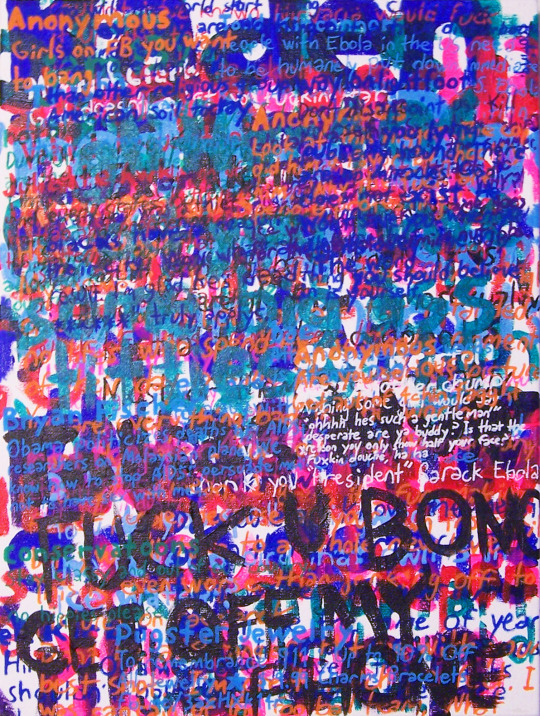
Vox Populi - (2014)
acrylic on canvas, 16″ x 12″
0 notes
Text
The Best Policy
I’m going to level with you. This is just my second post to this blog, and this account still has that new-blog smell. If you’re reading this, you’re probably still getting to know me. Well, I believe the foundation of any relationship is honesty.
So, cards on the table, keeping it 100, no bullshit.
I’m not a natural at this social media networking stuff. I’m still pretty new to it. I know I’m a Millennial, and a lot of people in my age group take to this stuff like it’s second nature. I’m not one of them.
Okay, so, here’s a brief history of my social life on the internet. My first experience with online socializing was with some web forums when I was about 16 or 17, still in high school. It feels strange to say it, but that was over a decade ago. The one forum where I felt most at home, by far, was the old vBulletin forum for the web cartoon Happy Tree Friends. Sounds kind of dumb now that I’m nearing my 30s... but honestly, about 90% of my social circle in the decade-plus since then is comprised of people I either met there, or met through people I met there, or never would have met if I hadn’t made friends there. It’s had a profound impact on my life.
About a year later, I joined deviantArt, and I’ve had an account there ever since. It’s become an ingrained part of my life, especially since the HTF forum was taken down and I lost interest in the cartoon. Over time, I’ve transitioned from a teen just having fun, to a college student showing off my growth as an artist, to an adult trying to present the image of a professional, and my dA page has reflected those changes.
I didn’t have a Facebook page until two years ago. I got it because I reasoned that it would be an invaluable tool for networking with people who might eventually want art from me. The same reasoning was also behind my decision to get a Twitter feed and a Tumblr blog last month. For an artist who bases so much of his serious fine artwork on technology, I have to admit, I’m sort of removed from that aspect of it-- you might say, even a bit averse to it. I’m one of those rarified types you sometimes encounter, who want nothing to do with Twitter, and think it’s completely idiotic. Or at least, that WAS me, up until last month.
But I’m still a Millennial, and as different as I thought I was, I’m apparently not immune to one of my generation’s great maladies-- social insecurity. And now, here before all of you, I openly admit it: I hunger for attention. I crave recognition. The form it takes is a bit different than the usual Internet personality. I’m still pretty much an introvert, and I’d love nothing more than for people to leave me to my own devices most of the time. But I’m really hungry for respect and praise and attention and validation, focused on the fruits of my artistic labor. My dream has always been to live off of being an artist, and honestly-- I don’t know how to do that, because despite all my efforts to get my work seen, and despite the actual gallery exhibitions, nobody aside from family and friends seems to even care. I keep telling myself, van Gogh only ever sold a single painting in his lifetime, so by that metric I’m a success. And on an emotional level, I’m fine with that, because my opinion and those of my loved ones matter more to me. But as a business model, it fucking sucks. And my life, and the lives of my loved ones, kind of suck right now too as a result, because the thing I love to do the absolute most in the world is currently financially unsustainable, and I have to jump through hoops that weren’t designed with me in mind to even try to remedy that.
Maybe if you’re reading this, you’ll go check out my website at www.mitchellvanduzer.com, and take a look at my artwork. But I want this, right here, to be more than a shameless plug. This is a moment of clarity and sincerity, which you don’t find too often these days on the internet. I’m telling you what you can realistically expect from me, and I’m telling you why. I’m new to this. It’s alien to me. I have difficulty with socializing in ANY context, in the real world or online. My circle of true friends is pretty small, because that’s sort of how I roll. Maybe part of this is that my parents are several years older than a lot of my friends’ parents, so I was raised with a slightly different ethic. I just happen to see “friends” as people whose company I enjoy, and with whom I actually feel some basic level of trust and emotional connection. “Friend”, to me, is not what the word has come to mean by association with Facebook, i.e., a name and an avatar that I can collect on a list so I can read their minutiae and make myself look popular.
Now that I’m on Facebook, and Twitter, and Tumblr, and Instagram, I guess saying what I’m about to say may make me a bit of a hypocrite. But I’m going to say it anyway. The reason I’ve been resisting social media (aside from my own introversion) is because I have a sense of how these things have altered and molded our perceptions, about concepts such as “friendship”, and about what is valid material to be disclosed in a public sphere. I don’t want to collect friends like fucking trophies. I don’t want my voice to be limited to 140 characters. And I don’t particularly like wading through dozens of my contacts’ links to articles about political causes and what not to eat and why GMOs and vaccinations are the Devil incarnate, either. The shallow end of the digital swimming pool just is not enough for me, and never will be. And this is all straight talk right now: I hope, if you follow me and my blog, that you genuinely like some of my artwork for the sake of liking it... or at least the things I write here. And I hope my blog can actually provoke some thought and introspection.
And I hope, maybe, some of you will turn out to be friends of the pre-Facebook variety.
0 notes
Text
Hello, Tumblr!
Allow me to introduce myself. My name is Mitchell. My friends call me Che.
Five things you should know about me, right from the start:
1. As you may be able to tell, I am an artist. At least, I consider myself one. I’ve got a BFA in General Fine Art and an Associate Certificate in Graphic Design. I’m as comfortable at a computer with the Adobe Suite as I am in the studio with a brush and acrylic paints. And I also write, too. But I’ll be able to tell you a little more about my creative practice later. In fact, I’m probably going to do a lot of posting about my artwork, or my feelings as an artist. That’s sort of what this blog is supposed to be about, really.
2. I’ve lived all over North America. I was born in South Carolina, spent my early childhood in New Jersey, spent the rest in Georgia, went to college in Florida, and transferred to a different college in Vancouver, BC, before moving back to the US, to my current home in northwestern Washington state.
3. I’m immutably introverted. Every Myers-Briggs test I’ve ever taken has declared me an INTJ. (Although, honestly, I’m torn between whether I think I actually am one, or if I’m an INFJ instead.) I’m also pretty open about having been diagnosed with Asperger’s syndrome, and have understandably been somewhat active in autism awareness. Don’t get me started on the subject of Autism Speaks or Jenny McCarthy.
4. I’m not likely to get into politics or religion much here. There’s a time and place for that, and this isn’t it. But I should note, just for the record, that I consider myself an agnostic, a secular humanist, and center-left moderate. Honestly, my feeling is, it doesn’t really matter what anyone else believes-- I respect those who respect me. As long as the discourse is friendly and courteous, I like hearing from people with differing perspectives, because it’s one of the ways that I learn and grow as a person.
5. I am an unapologetic, card-carrying geek. (Literally. I carry a MENSA membership card in my wallet.) Most of my friends proudly fly the geek flag too. I listen to a lot of prog rock and alt-rock. I’m into Star Wars, Star Trek, James Bond, Tolkien, Doctor Who, The Matrix, Community. MythBusters, Sonic the Hedgehog, and more than a few anime series (although GitS: S.A.C. is probably the one that has had the biggest impact on me). And any time Neil deGrasse Tyson has something to say, he’s got my undivided attention.
If, after these five points, I sound like somebody whose blogs you might find interesting-- then cool. Glad to have you aboard. I’ll do my best to keep you entertained. But more than that... I’ll do my best to keep you thinking.
Thanks for dropping by!
0 notes